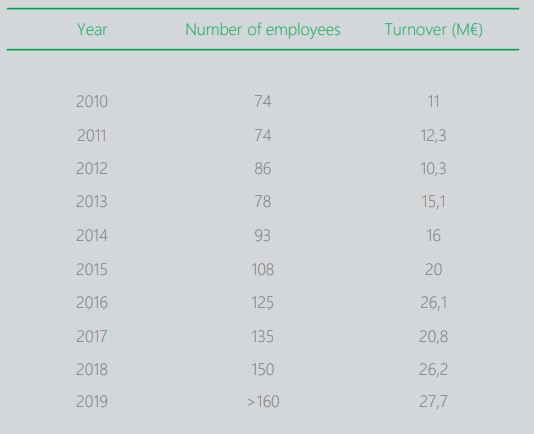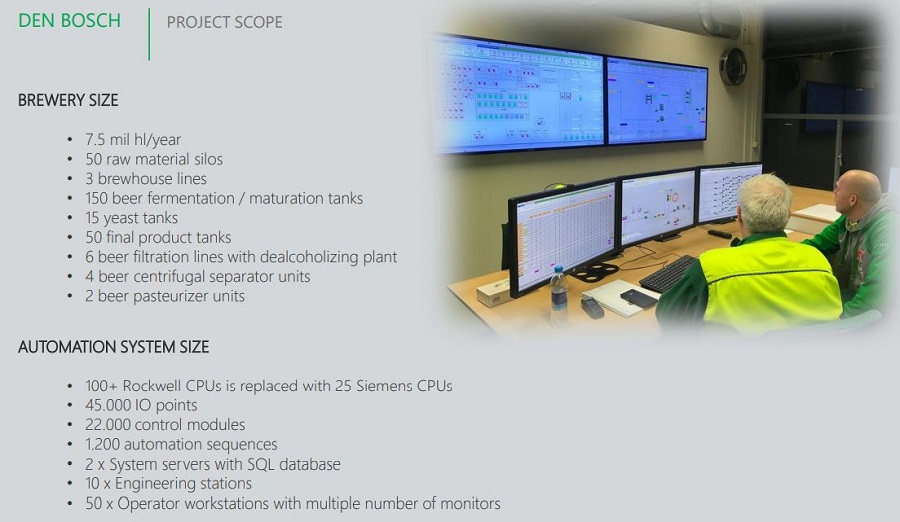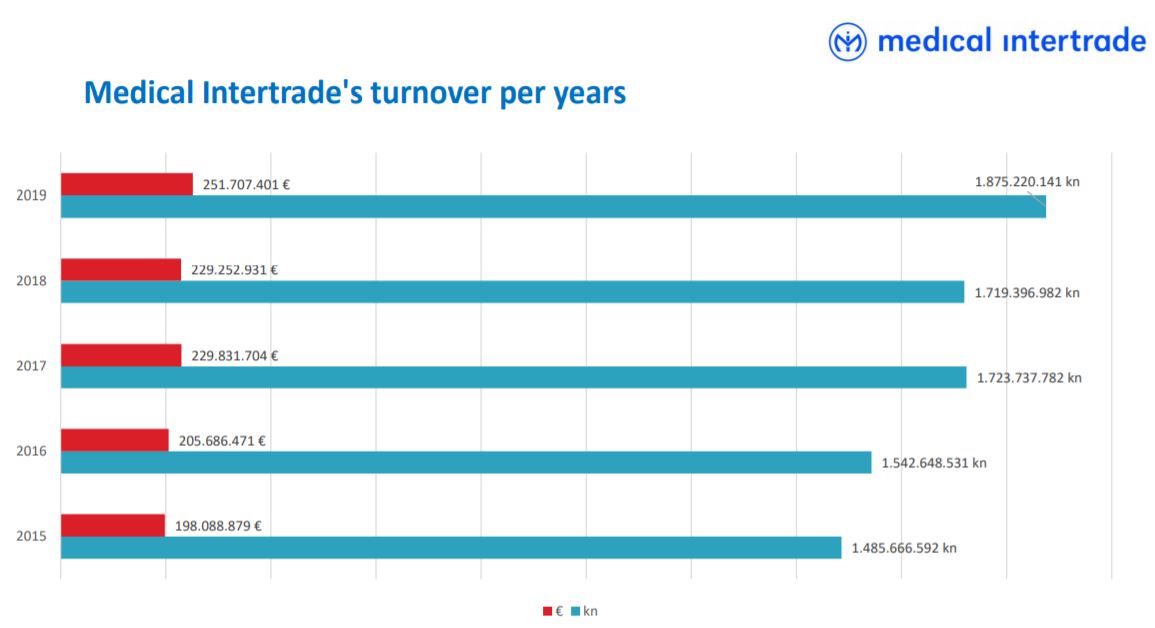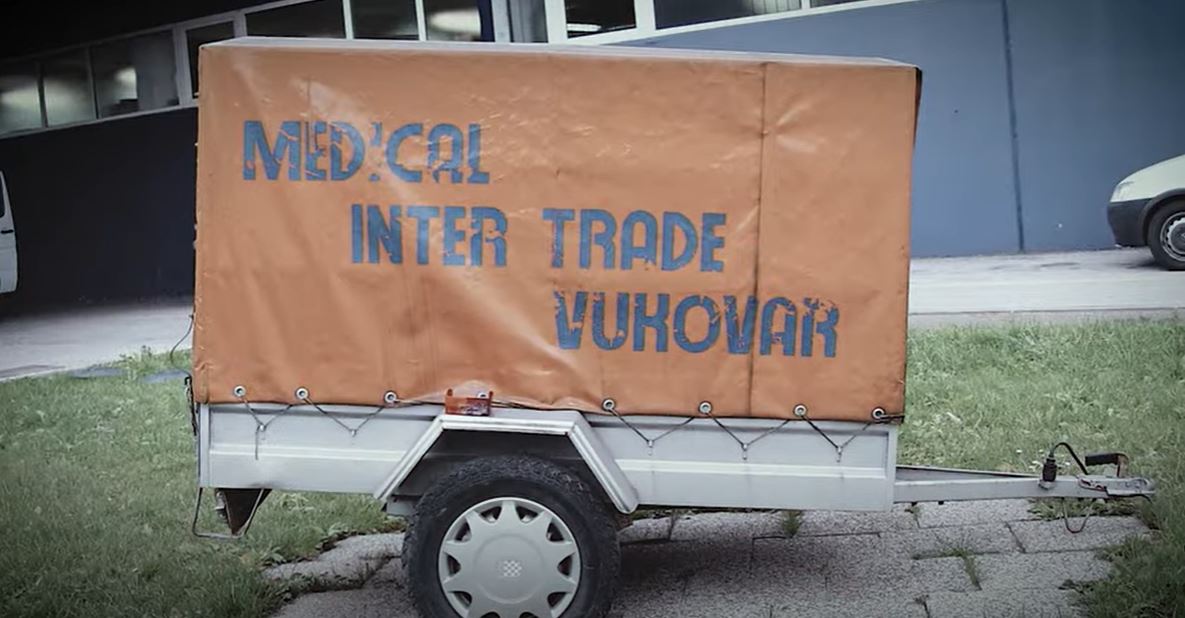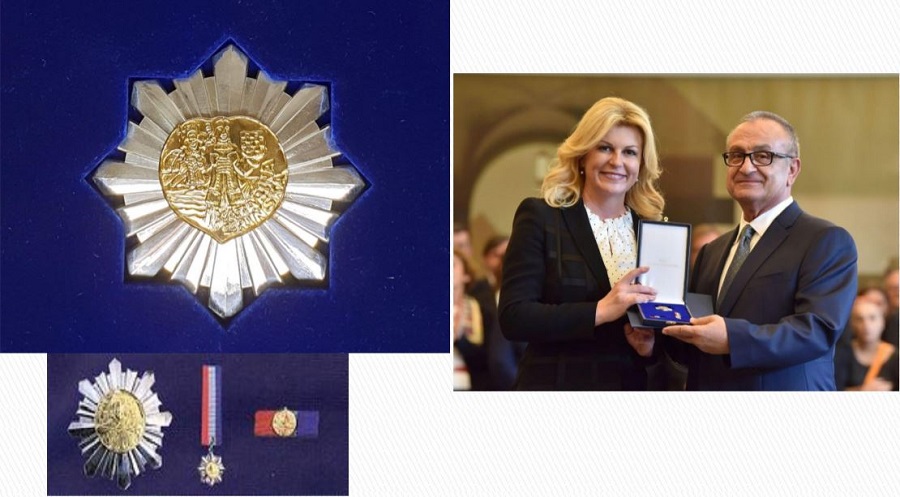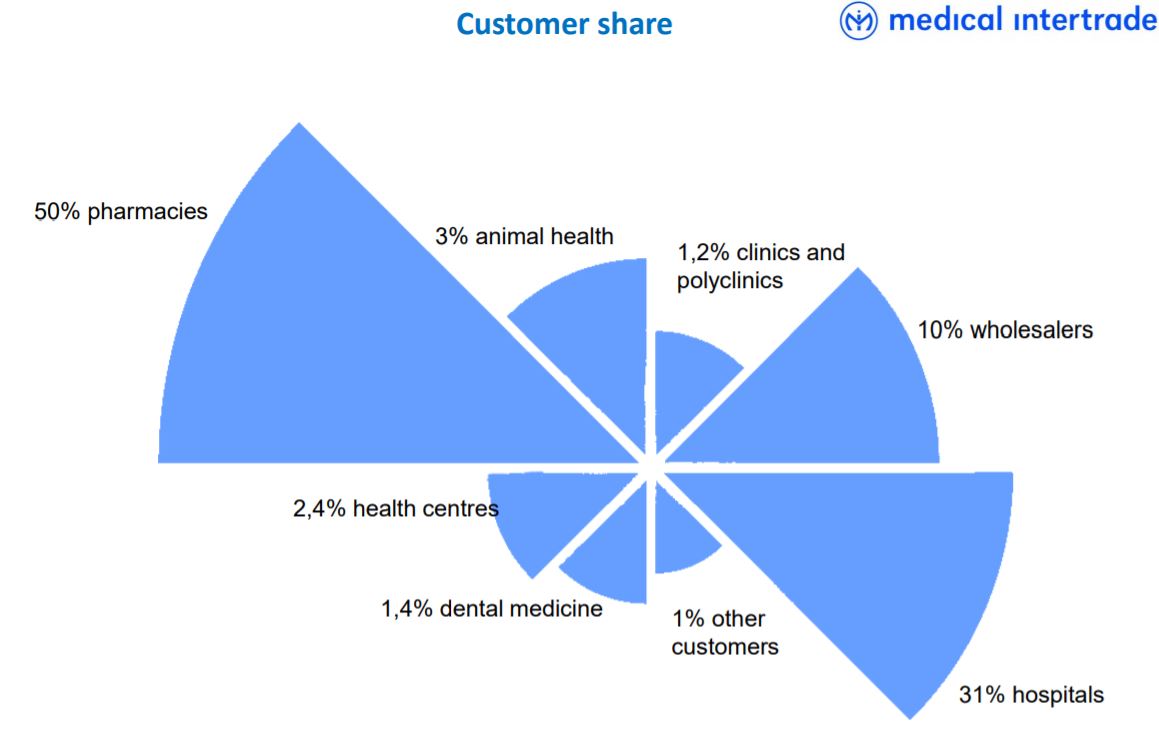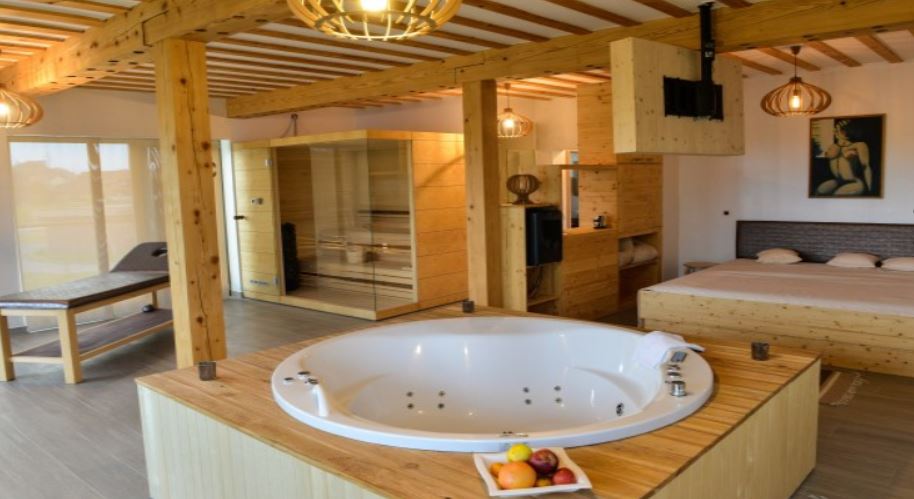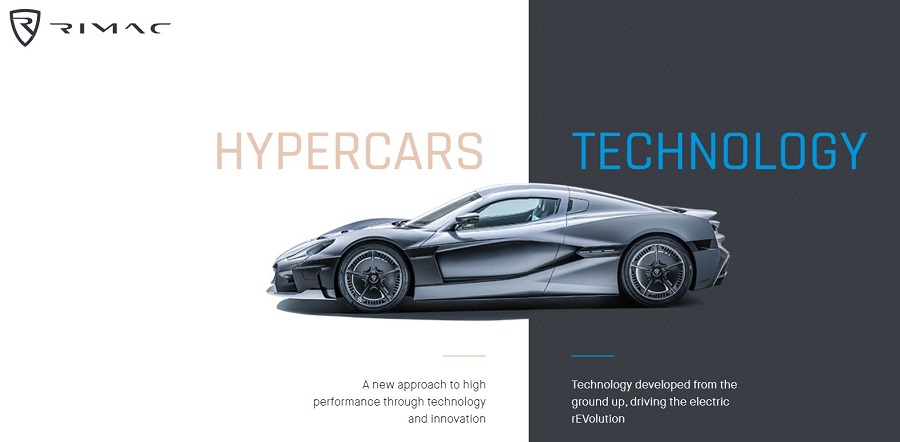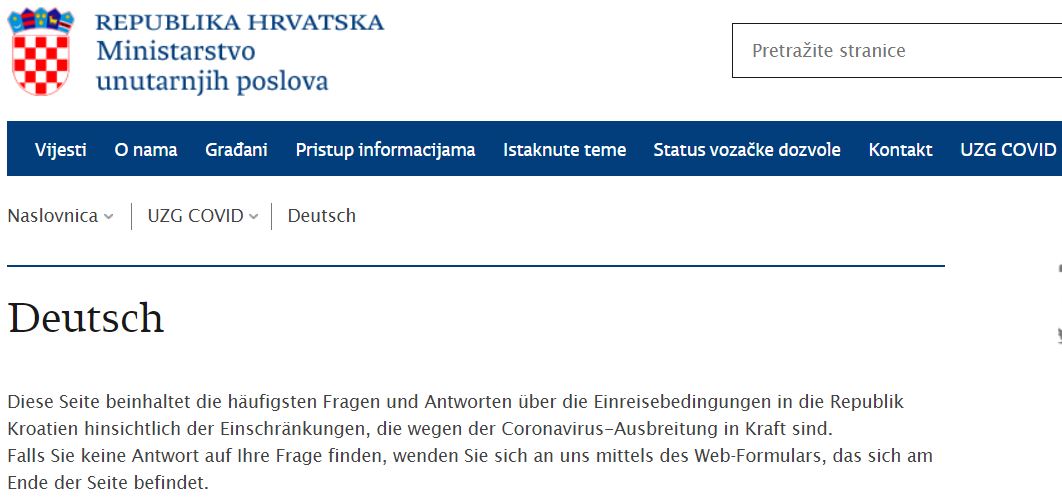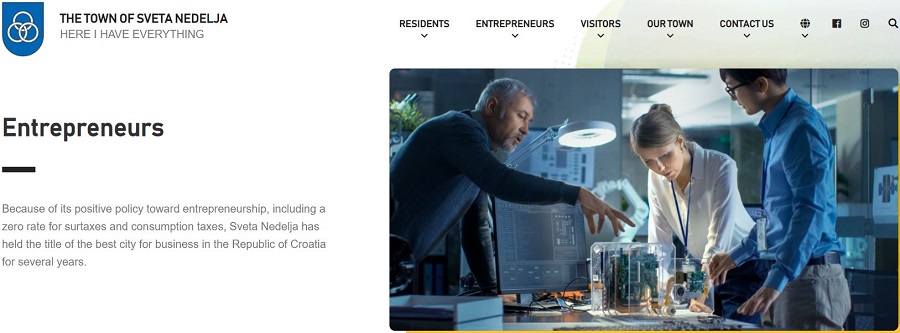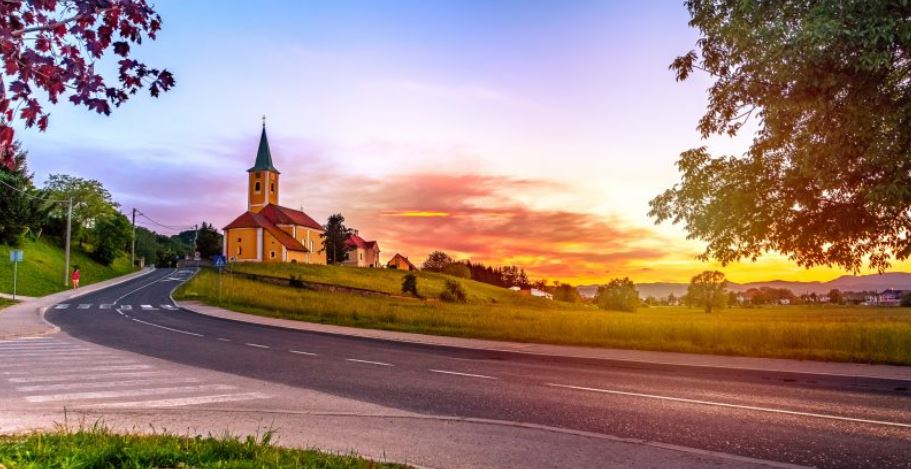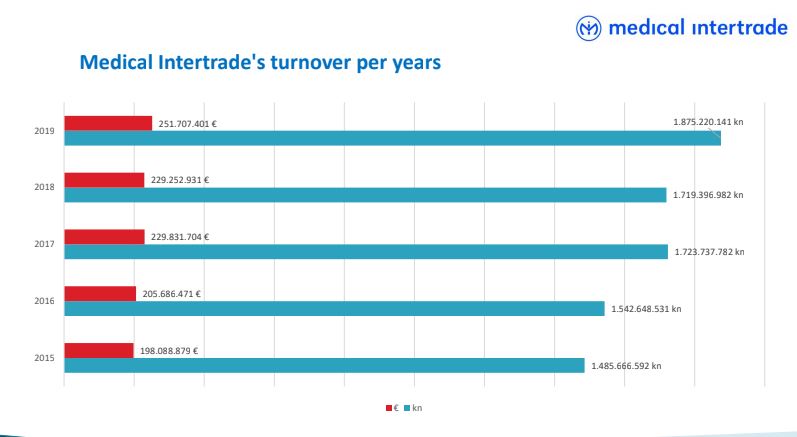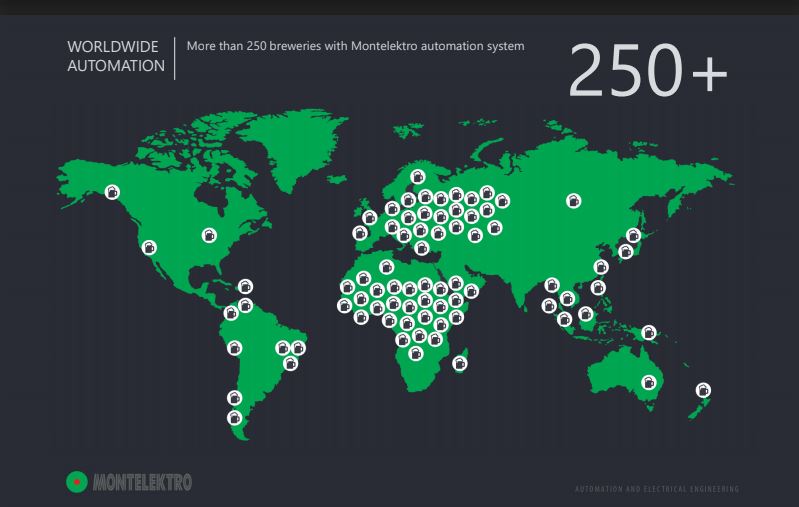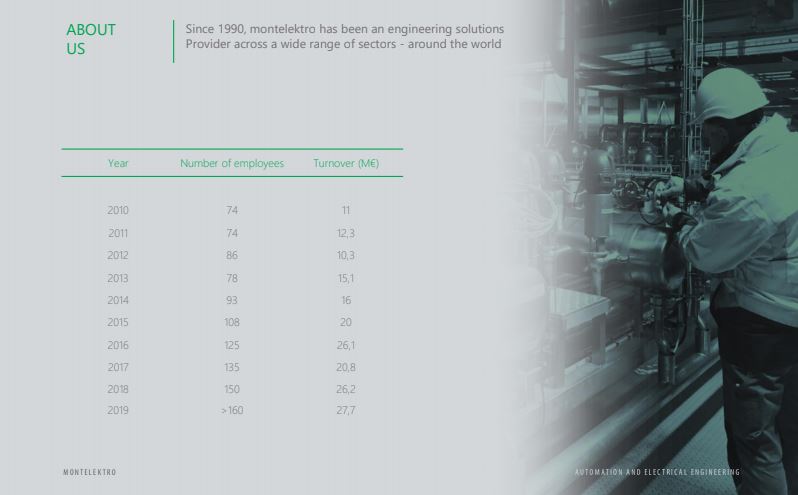Sveta Nedelja Beyond Rimac: Montelektro, Automating Breweries Across the Globe
October 27, 2020 - Continuing our look at the economic boom town of Sveta Nedelja just outside Zagreb, meet Montelektro, keeping beer production on schedule all over the globe.
I really had no idea what to expect.
A recent invitation to spend a long weekend in Sveta Nedelja, home to Rimac Automobili, as guests of the town was a welcome break for the daily grind, and it included a very full programme on the Friday, visiting some of the successful businesses in the town.
And if I thought that Rimac was the only show in town, I could not have been more wrong - this town is ROCKING.
Some simple stats will suffice to explain how Sveta Nedelja is bucking the national trend of emigration and economic doom and gloom. The population has increased by more than 10% since the last census in 2011 (18,000 to over 20,000); jobs have increased by 20% since the current administration took over in 2017 (from 7,200 to 9,000), and unemployment is down to just 3.9%. Not bad in a time of global economic turndown and much higher unemployment all over the country.
My hosts were keen to show me as much as they could, including the mandatory visit to Rimac. It was a fascinating day, full of surprises. Not least, perhaps to find that Rimac was actually not the biggest show in town - that honour went to a Syrian entrepreneur, whose main company turned over a stunning 250 million euro last year, and who currently employs 829 people. Learn more about this incredible story in Meet Sveta Nedelja's Biggest Company, a Success Story Born in Syria.
The tour of successful businesses continued, with yet one more success story showing strong growth in both turnover and employees over the last decade, and a business which has gone truly global from its bases in Sveta Nedelja and Kastav.
Celebrating 30 years since its founding in May, 1990, Montelektro is a major engineering and Process Control System integrator company offering engineering solutions to a wide range of sectors worldwide, including brewing, food and beverage, cement, steel, pharmaceutical, and tobacco industries.
Especially the brewing industry.
With an A-list client list of breweries that includes Heineken, Carlsberg, ABInBev, Molson Coors, Diageo and Castel, Montelekro's systems are in more than 250 breweries around the world, making sure that the systems powering the production of this most essential liquid operate without problems.
Montelekro's turnkey solutions range from the small and simple – to the most demanding and complex projects. These include:
- Design and installation of Medium Voltage and Low Voltage systems
- Electrical engineering/Control panel design and manufacturing
- Process Control System design and delivery
- Installation material specification and delivery
- Automation software engineering
- Installation
- Commissioning
- Packing and worldwide delivery
- Project management
- Training
- Maintenance
- After sales support
At the more complex end of the spectrum - and an insight into the complexity of some of the projects it delivers - a 5-year project at the giant Heineken Den Bosch brewery in the Netherlands gives some idea of the complexity of the tasks at hand.
Montelektro was tasked with replacing the existing automation system for the production and utility areas, using a different platform, ProLeiT brewmaxx. As one can see from the numbers above, the scope of the task was immense. In terms of human engagement, the project required 20 man-years of office engagement (up to 10 engineers simultaneously) and 4 man-years of onsite presence (up to 8 engineers simultaneously). With production stops no longer than the planned 24-48 hours, all systems have now been overhauled, and the project completed on time and handed over.
Yet one more example of how Sveta Nedelja excellence is performing on the global stage. So the next time you are driving along Zagreb's southern motorway between the Slovenian border at Bregana and the airport, raise a glass as you pass Sveta Nedelja to the team at Montelektro for its global contribution to keeping the beer flowing around the world.
You can learn more about Montelektro and their services for the brewing, food and beverage, cement, steel, pharmaceutical and tobacco industries on their official website.
I am not surprised by either, and we shall continue our mini-series looking at the business success of Sveta Nedelja Beyond Rimac on TCN shortly.
For the latest news from Sveta Nedelja, visit the dedicated TCN section.
Meet Sveta Nedelja's Biggest Company, a Success Story Born in Syria
October 10, 2020 - A Croatian success story born in Syria. More than 50 years after arriving in Zagreb to study, Radwan Joukhadar's medical business goes from strength to strength.
Can the nice guys succeed in business in Croatia?
In many ways, this is the most extraordinary tale of foreign entrepreneurial success in Croatia that I have come across so far, and it could not have happened to a nicer man. And what a heartwarming story of success.
My recent weekend visit to Sveta Nedelja was a mixture of tourism and visiting local businesses, at the invitation of then deputy mayor Davor Nadji. When one thinks of businesses in Sveta Nedelja, only one name really comes to mind - the global superstar that is Rimac Automobili. And while Rimac is without doubt the star name in Croatia's most progressive and youngest town, where the population has increased more than 10% since 2011, and 20% more jobs have been created since 2017 alone, I was surprised to hear that Rimac was not the biggest show in town.
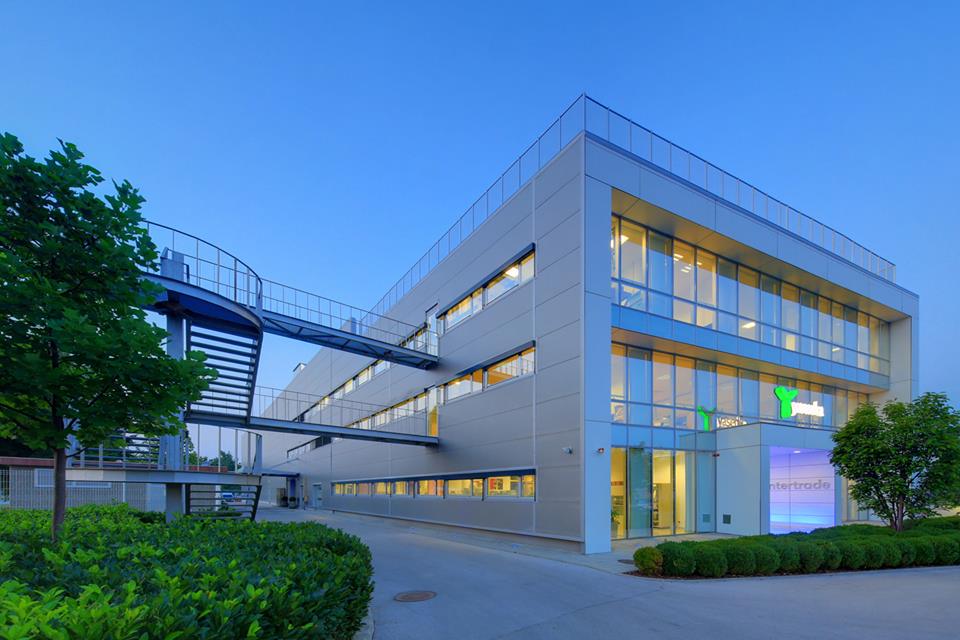
That honour falls to a company which last year turned over more than 250 million euro, a 20% increase since 2015. A company whose founder was born in Syria, and who swapped life in Aleppo for Vukovar, having arrived in Zagreb to study back in 1969.
Half a century later, Radwan Joukhadar finds himself running three successful companies in Croatia, employing a total of 829 people, and a significant regional player in the pharmacy and medical supplies business. A finalist in the 2015 EY Entrepreneur of the Year (see video above), the journey from humble beginnings and just two employees in Vukovar to his current success has been anything but smooth.
I first met Joukhadar at last year's EY Entrepreneur of the Year dinner when we were seated next to each other for dinner, where he told me a little about his story and his love for Vukovar (his car still has Vukovar plates). Having graduated with a Master's Degree in Medical Biochemistry in Zagreb, Joukhadar was to put that knowledge to good use in 1990 when the law was changed to allow the wholesale of medicinal products, so he opened the first private wholesale pharmacy in Croatia.
In Vukovar.
The tragic events of 1991 in Vukovar unfolded, and the business suffered greatly as Vukovar was overrun. More than a quarter of a century later, Joukhadar endured a similar experience in his native Aleppo, just as he was opening up the lucrative Syrian market for his expanding business.
Undeterred by such setbacks, he pushed on, opening his first pharmacy in Zagreb in 1992 and moving operations to Sveta Nedelja in 1998.
But he has never lost his love for Vukovar, or his determination to help the city rebuild.
In 2014, he opened Yasenka in factory in Vukovar which produces cosmetic products and food supplements of exceptional quality, which are sold all over the world (currently in 20 countries, with 4 more soon to be added).
"The market for this factory has to be the entire world," he said at the opening. "Our aim is to sell these products from Vukovar not just to a few pharmacies in Croatia. We have to go beyond that. There are 25 million people in Syria alone and the recently devastated town of Aleppo in Syria has a population of five million. These regions will recover and we are counting on that market."
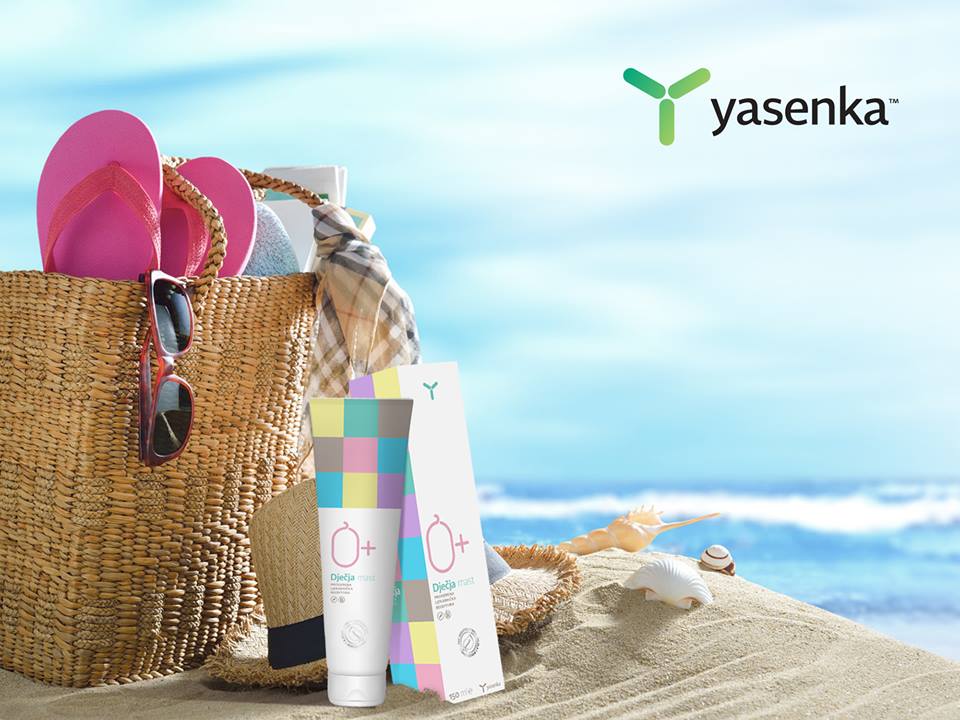
Named after his wife and life-long partner, Jasenka (with a slight spelling change to avoid confusion in pronunciation), Yasenka is the third of Joukhadar's company, in addition to the 47 pharmacies in the region under the Ljekarnice Joukhadar brand, and his flagship Medical Intertrade. Together, they employ 829 people, mostly in Croatia, but also in wholesale companies in Sarajevo and Ljubljana. In 2018, Medical Intertrade was listed as the 37th on the list of top 1000 Croatian companies in terms of income.
The following year, Joukhadar was awarded the Order of Danica Hrvatska by Croatian President Kolinda Grabar Kitarovic for special merit in the development and improvement of the pharmaceutical profession, and for his humanitarian activities and altruistic help to citizens in Croatia during the Homeland War.
Although we have only met briefly, it is hard not to be both impressed and humbled by this very amiable Syrian, who has touched the lives of so many in his 50 years in Croatia. I was struck by the loyalty of his team when we visited Medical Intertrade in Sveta Nedelja. One was with the company for 20 years, another 22, another 25. There were no job losses during the pandemic. He is also clear that he believes in doing everything absolutely correctly, and that quality is a key ingredient in everything, from service to products themselves. "Quality brings quantity." he said in a recent interview. And people.
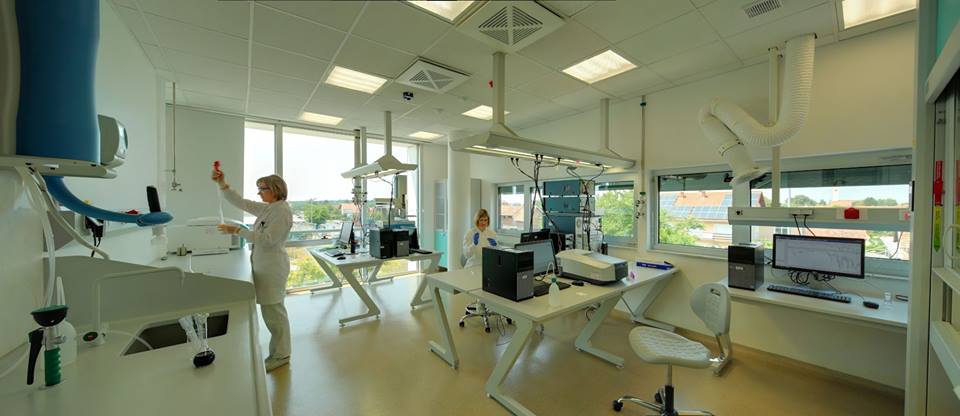
"As a company owner, I had full authority to realize my vision into action. I employed young people, uncut diamonds, and polished them one by one until they became a beautiful necklace around the neck of our beautiful Croatia. When you have capable people and an orderly system, it is not a problem to steer such a ship and safely lead it from port to port." Read the full interview in Lider.
Medical Intertrade, the company with headquarters in Sveta Nedelja, is the main business whose core business is sales and marketing of medicines, medical devices for human, dental and veterinary use and of medical equipment. And while the spreadsheet numbers look extremely impressive, there is one huge negative factor which is a constant thorn in the side of progress - late payment.
The wholesale business is a tricky one at the best of times in terms of payment schedules. When 31% of the end users are public hospitals, things can get complicated. While the government lacks understanding on late payment of VAT and other taxes, delays in payment for medical supplies to hospitals can take months, if not years (and with the VAT due for payment whether or not the hospital has paid the invoice). With other products, simply halting deliveries until invoices are paid might be a sensible solution, but when the sector if public health, things are different. The threat to the supply chain is real unless the Ministry of Health can find a solution to its debts, and the company is in constant contact with the relevant ministries to resolve the situation.
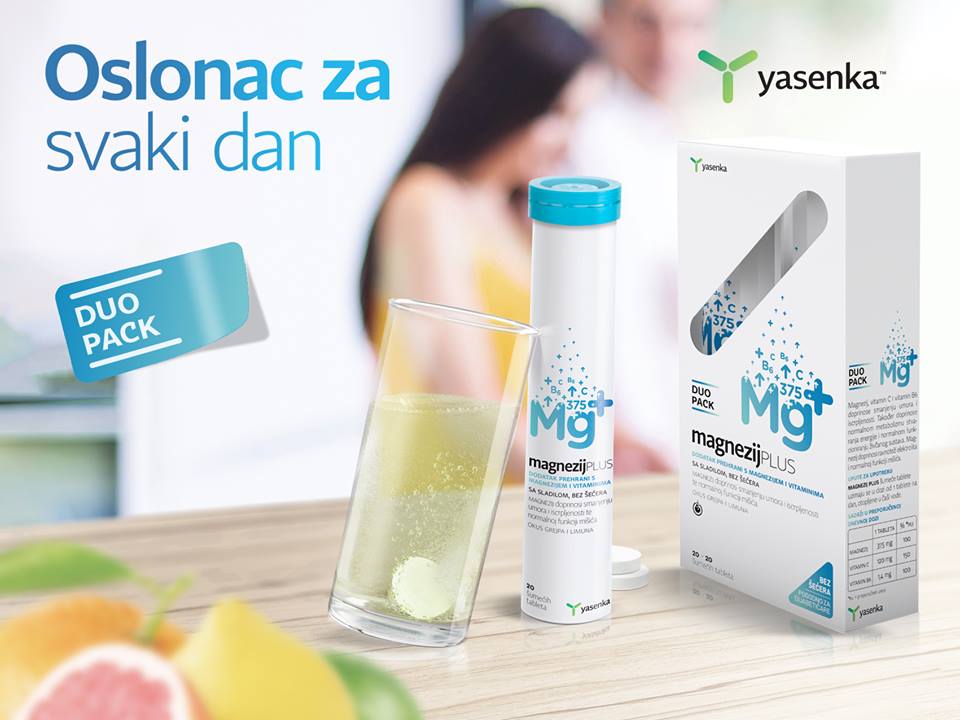
It is a situation which Radwan Joukhadar takes in his stride, just as he has taken everything else that Croatia has thrown at him since he got off that train in Zagreb train station. And he has met all with a gentle smile and a determination to press on and improve things for people in his adopted country, which he has clearly come to love.
Born in Syria with a heart in Croatia, in so many ways Radwan Joukhadar symbolises the current energy of Croatia 2.0, despite his advancing years: a pioneering spirit, a refusal to take no for an answer, innovative products, and a base in the town known to support entrepreneurs more than any other in Croatia.
To learn more about the services of Medical Intertrade, click here.
For the latest news from Sveta Nedelja, visit the dedicated TCN section.
Camp Zagreb, Natural Lakeside Heaven a Short Connection to the City
October 4, 2020 - A visit to Camp Zagreb, a rather delightful lakeside accommodation alternative for Croatia's capital in Sveta Nedelja, a short shuttle ride from the city centre.
Camping on the Adriatic has long been a holiday of choice for hundreds of thousands of tourists each year, and the camping facilities - particularly in Istria - are plentiful and improving year by year. Head inland, however, and camping options are a lot more sparse. But when they are good, they are REALLY good, as I discovered on my first visit to Camp Zagreb, located idyllically on a lake in Sveta Nedelja, just a few miinutes drive from the capital, Zagreb.
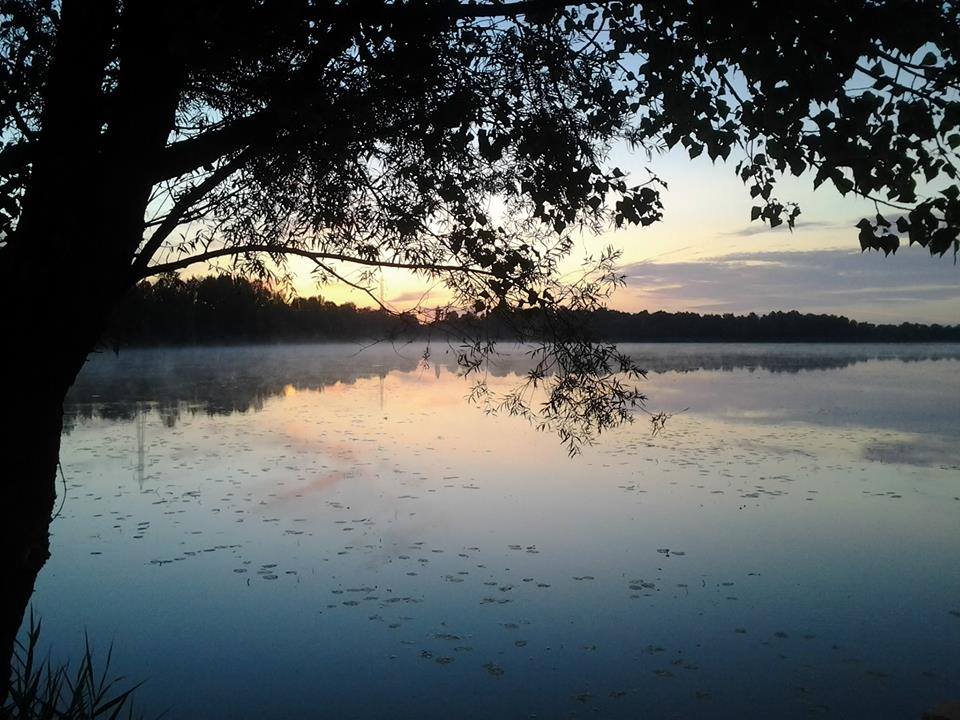
I had no idea what to expect from tourism in Sveta Nedelja when the town's local authorities invited my family down for the weekend to have a look around the town, its businesses, local administration, as well as its tourism potential. The home of Rimac Automobili and the most transparent local administration in all Croatia, I was excited to explore the business and Croatia 2.0 local government scene (learn more about those aspects of my trip here), but I was a little dubious about the town's ability to impress touristically. My two teenage daughters were even more dubious about another 'fun' weekend away with Dad and his work... And yet it was they who had huge smiles on their faces on the drive home, having had a VERY good weekend in the Sveta Nedelja Great Outdoors.

Just 20 minutes from downtown Zagreb, and yet a world away, Sveta Nedelja was a breath of fresh air after yet another week of staring at computer screens running TCN. It has several lakes which comprise one of its key tourist attractions, with Camp Zagreb located on the edge of the largest of them. A perfect base not only to explore the region if you are camping, but - as I saw last Sunday morning - an absolute magnet for Zagreb's residents looking to escape the city and immerse themselves in nature.
And there was plenty to do, with many activities supplied by Camp Zagreb. Cycling around the lakes was a lot of family fun, but also a very natural experience through the autumn leaves. No asphalt roads here, just kid-friendly cycling paths through the trees, affording magnificent views of the lakes.
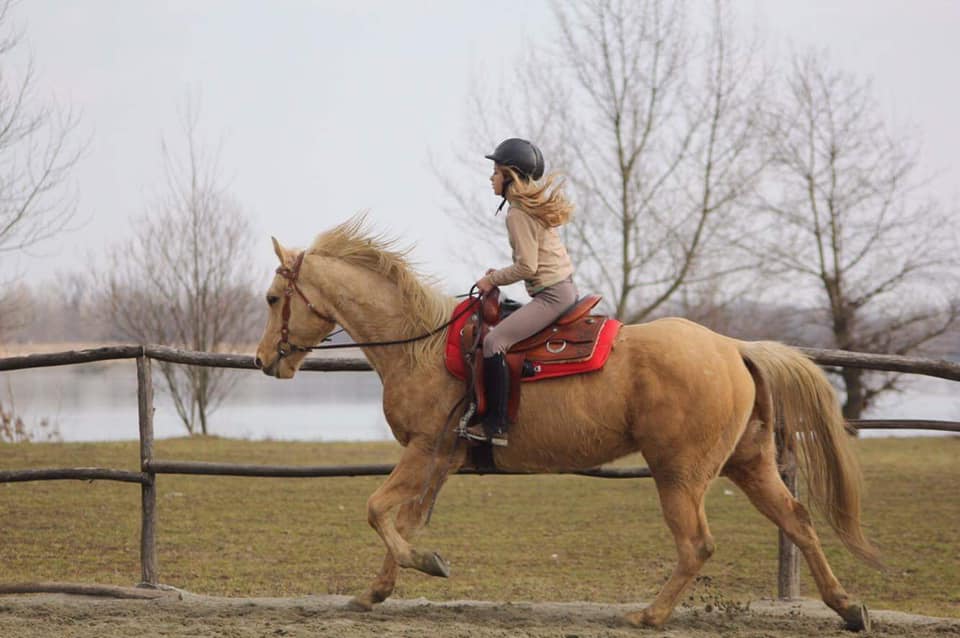
A little horse-riding for the youngsters, perhaps? There is an on-site horse riding school, where horses are available for petting, riding around the arena, a picturesque lakeside tour, or - for the more experienced riders - the chance to gallop along the Sava into the city and back.
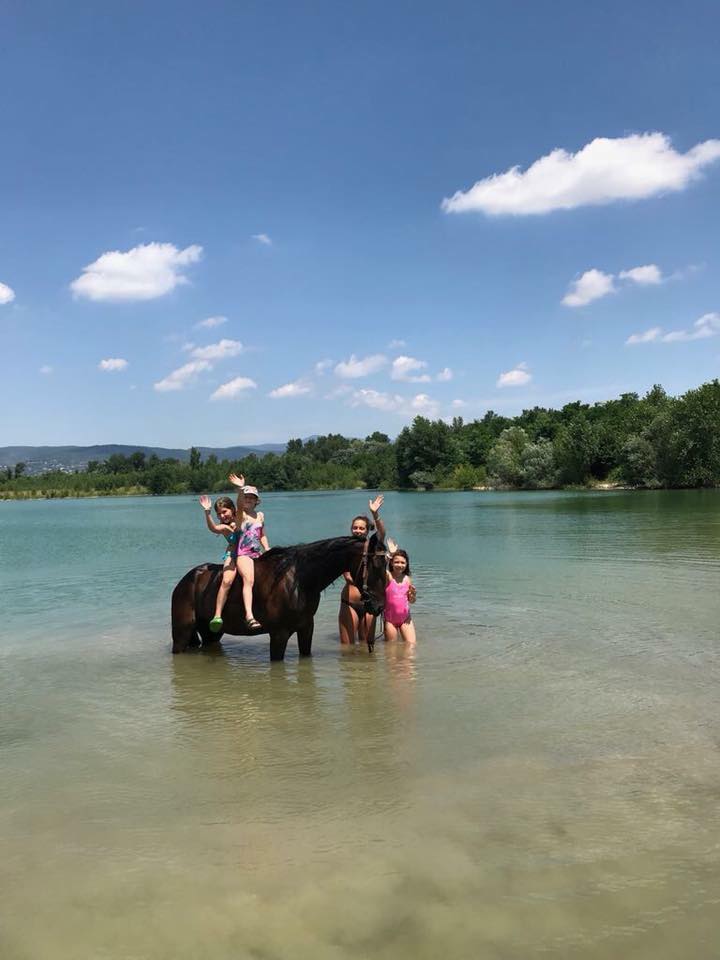
Or perhaps go for a little horsey dip instead...
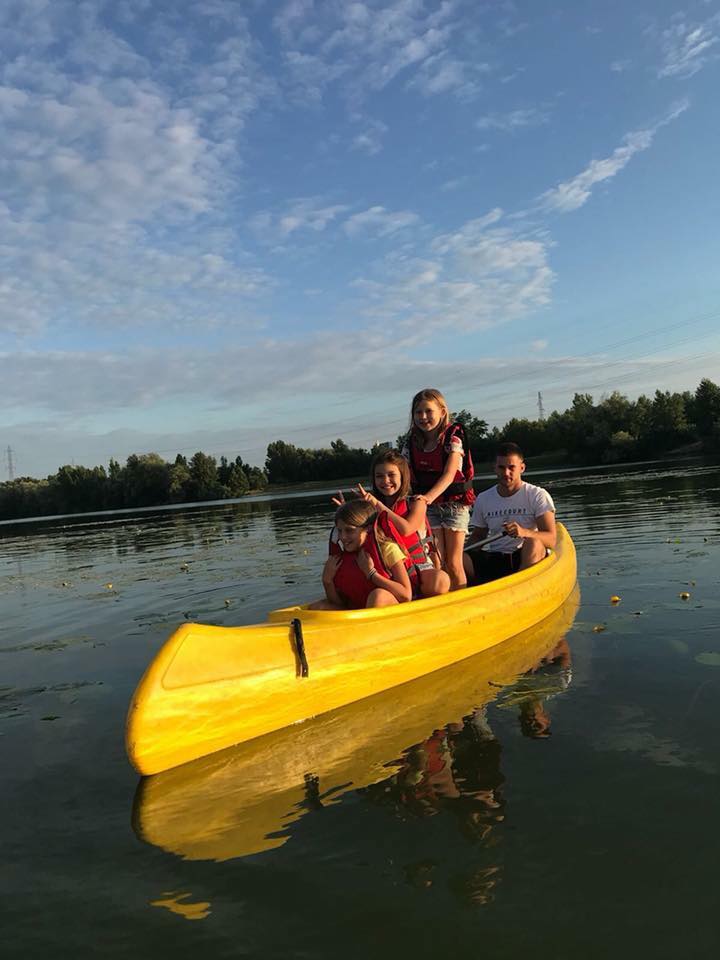
The lakes are also popular for boating, and these can be hired via the camp reception.
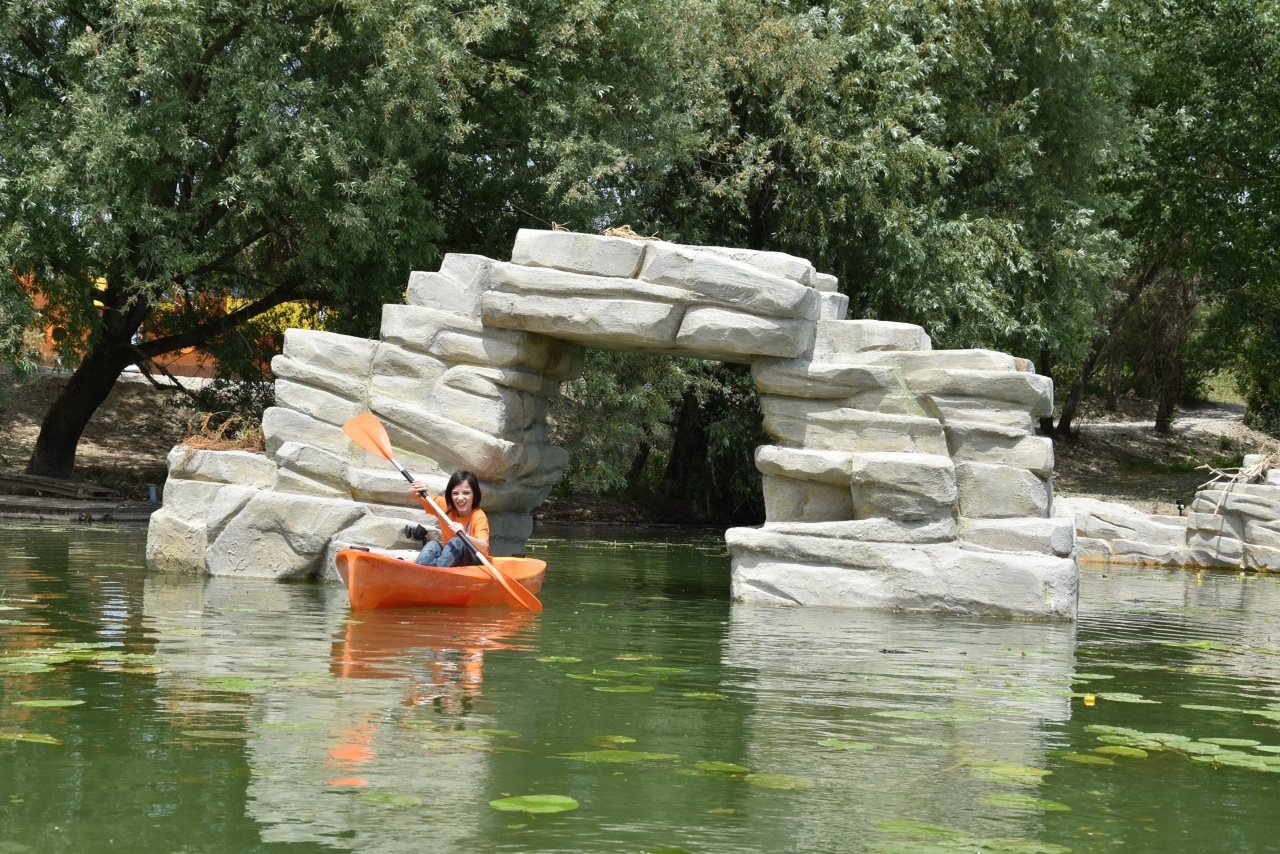
A selection of clever rock formations add to the boating challenge.
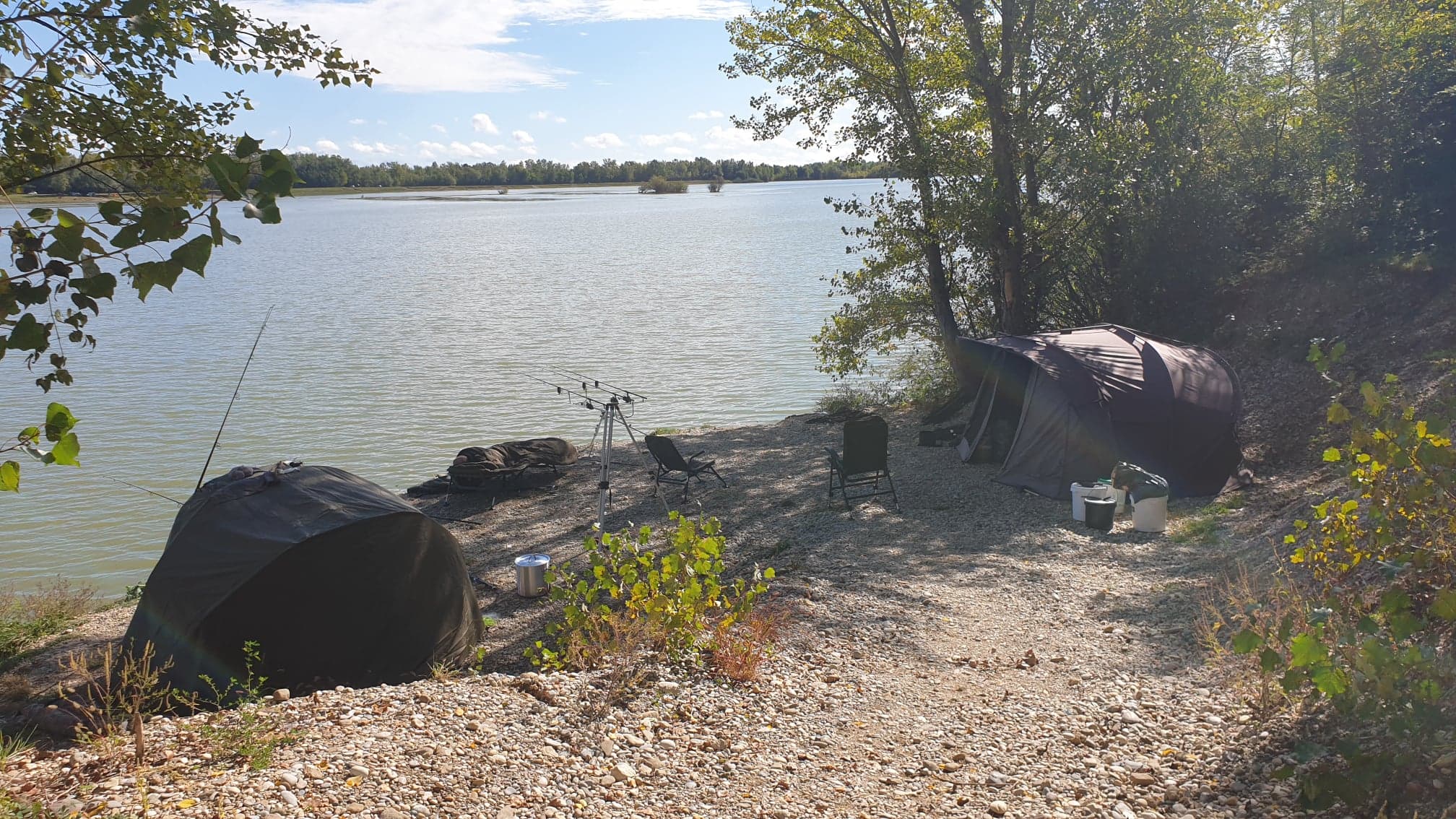
The lakes are also very popular for another popular sporting activity - and a great one in this socially distanced era - fishing. The lakes were full of small little clearings down to the water every 20 metres or so, many of which were occupied by 1-2 fishermen, who had set up their tents for a weekend of relaxation, nature and fishing. With tent pitches starting at 40 kuna a night, a very affordable escape from the stresses of the city.

For some, perhaps, even fishing is a little too strenuous an activity. Why not just sit back and relax with a coffee overlooking this magnificent nature a short drive from the city.
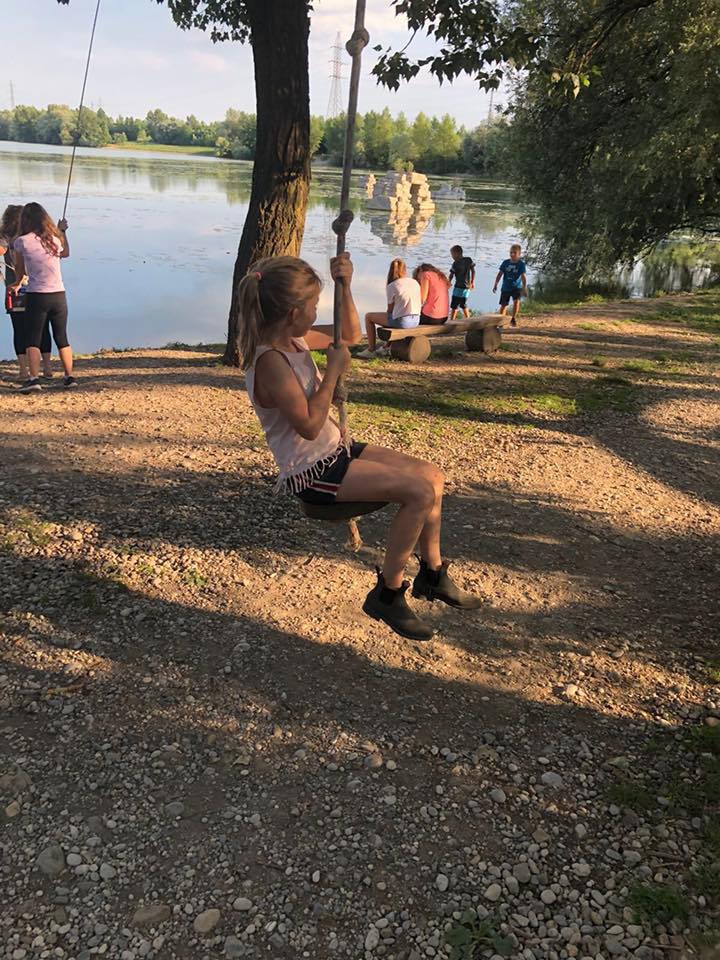
And an even bigger incentive for parents to relax with a lakeside coffee, while watching the little ones explore the kids adventure playground next to the cafe and restaurant.
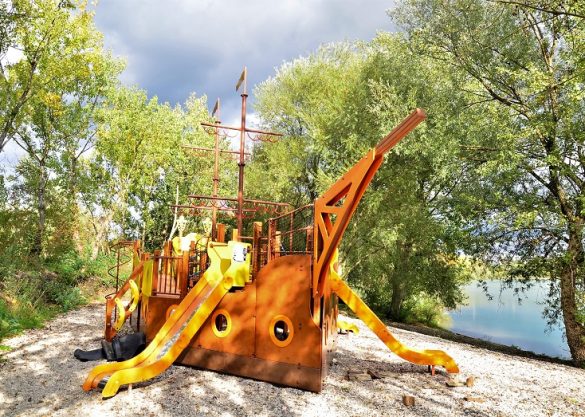
The unique monkey bar ship is just one of the popular attractions.
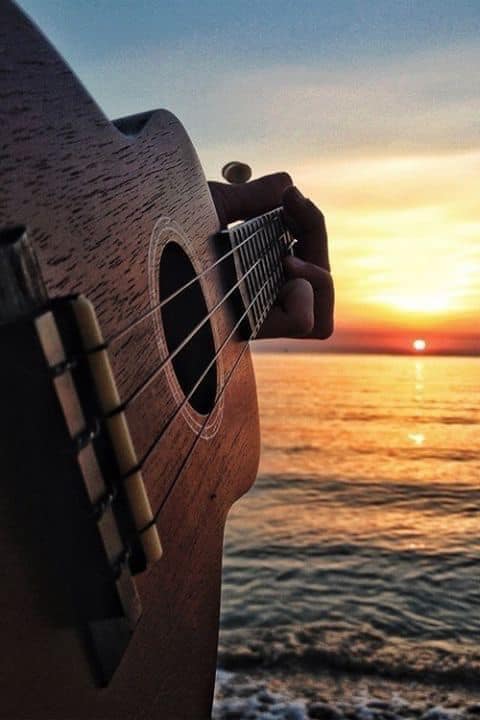
We haven't started talking about the camping aspect yet, but we will shortly, but what struck me during the weekend visit was just how much Camp Zagreb had to offer people from Zagreb for a day or weekend escape. It truly is a tranquil spot, its nature unspoilt and untampered.
Rather than just being there just to serve camp guests, the management appears to be working hard to attract local business as well, and there are plenty of live music events, as well as special events to celebrate the end of the working week.
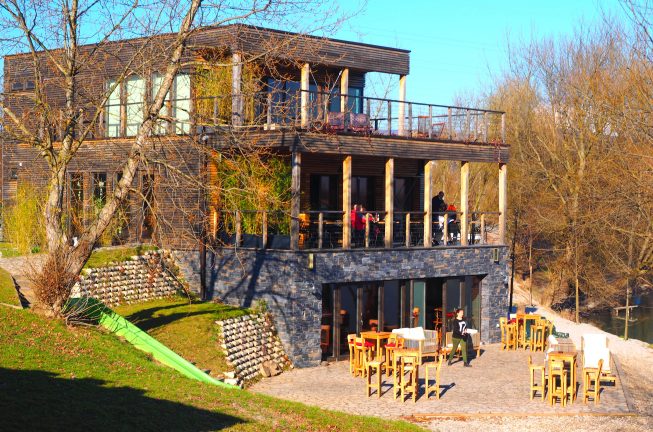
The main building on the water is tastefully done, with cafe/bar on the ground floor, restaurant on the first floor, and a rather special wellness option on top.
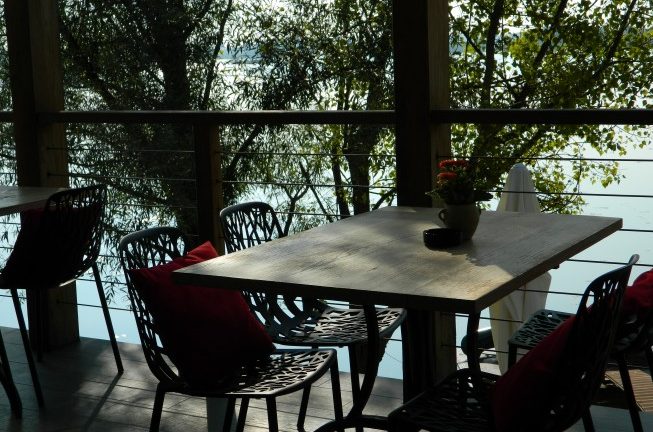
There is plenty of space inside in the wooden interior, but nothing quite beats the view overlooking the water when the weather is clement.
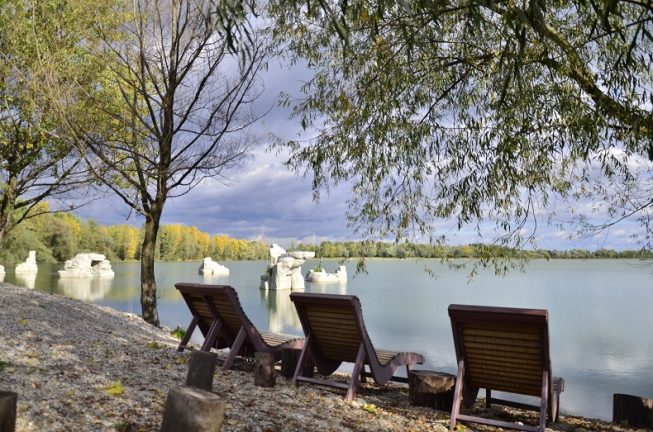
Or a lakeside coffee or something stronger, watching the world go by.
While the attractiveness of a visit to Camp Zagreb and its natural treasures from the city is clear, the core business, of course, is camping. And here too, it proves to be a great destination, but for very different reasons.
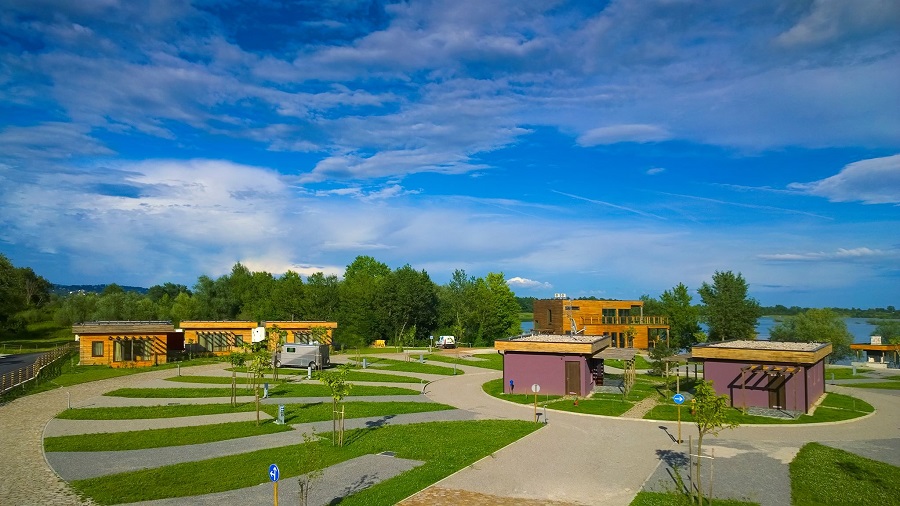
Firstly, location. Sveta Nedelja is just 10 minutes from the main Bregana border with Slovenia, and it lies just off the motorway to the west of Zagreb. For the many campers heading to Croatia from central and western Europe heading down to Dalmatia, it makes for an ideal stop. Psychologically over the border and in Croatia, a few minutes off the motorway so as not to take campers too far from their onward route. And, in addition to the immediate proximity of all the natural goodness described above, it is a great place from where to explore Zagreb in a day. In order to make that experience more comfortable, the campsite offer a shuttle service to the centre of the city, which takes under 30 minutes. There is an additional (free) transfer to the local train station 2 kilometres away, which also connects to the centre of the city.
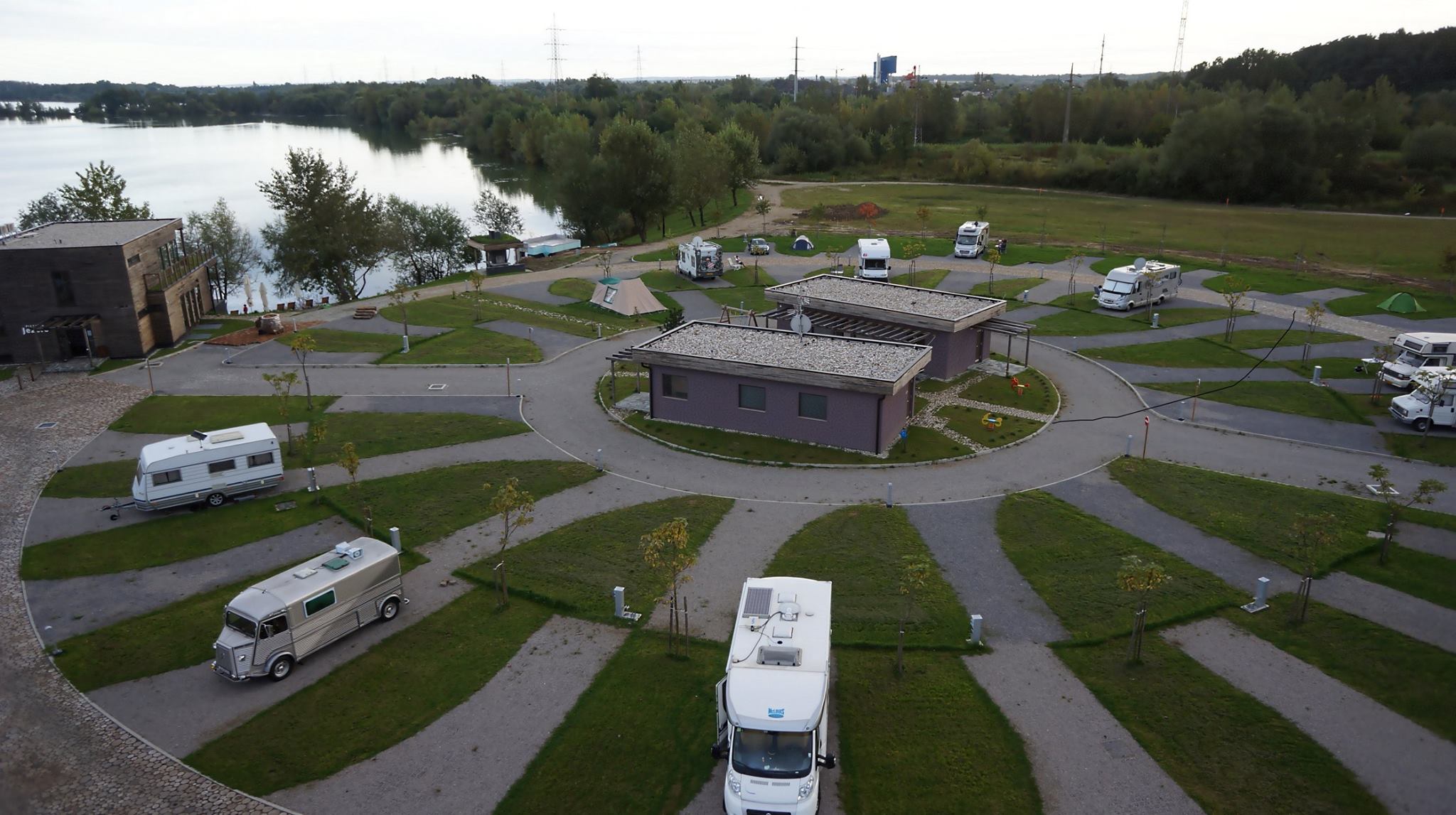
Camp Zagreb has about 20,000 overnight stays in a normal year (2020 has been anything but normal), and it offers various types of camping services, Premier services for caravans and motor homes come in a choice of two pitch sizes - 75m2 and 100m2 - which are located a few metres from the lake, where a quiet zone is observed from 23:00 until 07:00.
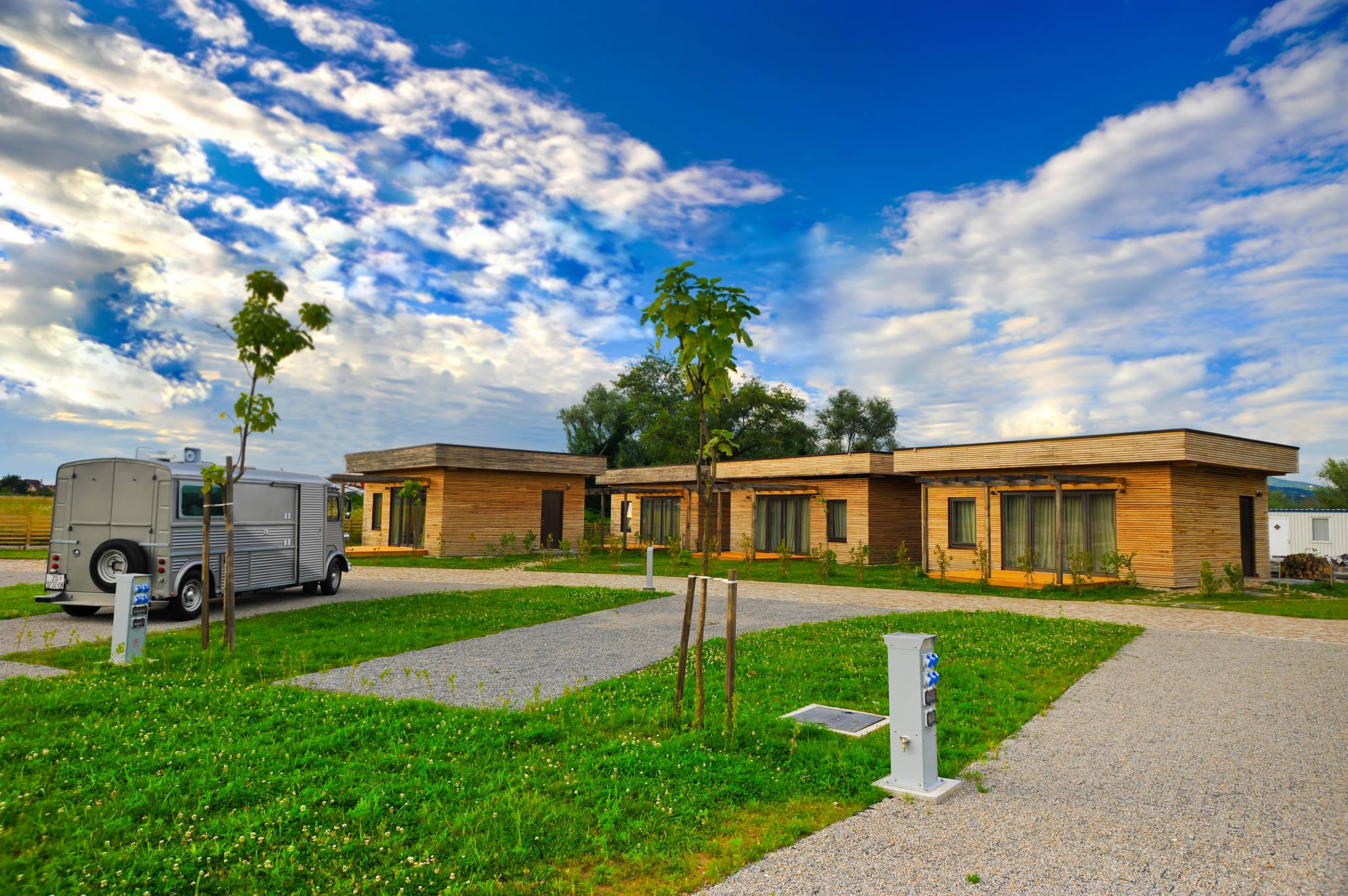
For those without their own motor home, a selection of wooden bungalows, designed for couples, are also avaialble.
Looking for that little extra? The 65m2 wellness suite on top of the restaurant takes campsite luxury to a new level, with Finnish sauna and jacuzzi some of the highlights inside the suite, while the spacious terrace overlooking the lake is the perfect spot to greet the new day.
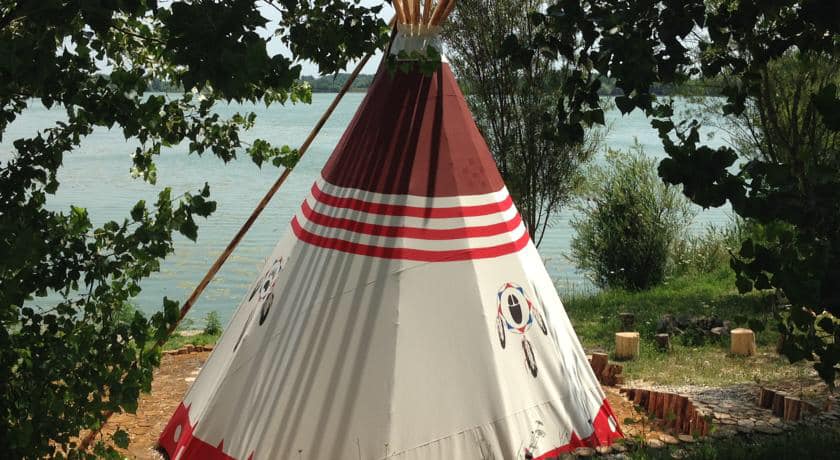
Looking to be closer to the water? A 19m2 tipi tent with its own private area to the water sleeps three, with campsite facilities close by.
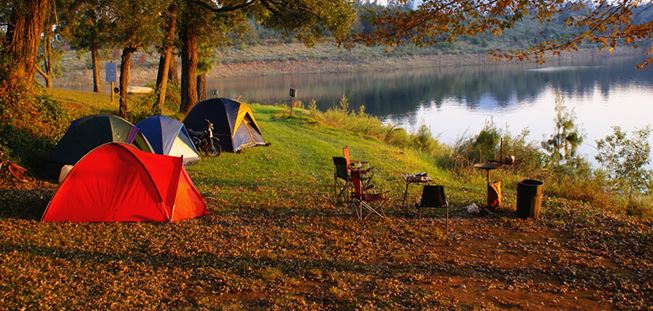
And, of course, there are plenty of lakeside spots away from the crowds for those looking for a weekend of quiet fishing.

I hadn't known what to expect from tourism in Sveta Nedelja when we set off for our business and tourism tour. It was a weekend full of surprises, but the natural beauty of the lakes and surrounding area, completely unspoilt, was as much a highlight as a visit to Rimac.
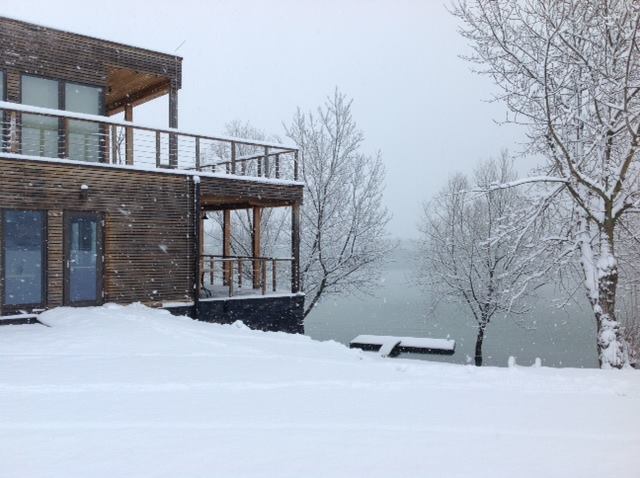
Camp Zagreb is a campsite for all seasons. Open 50 weeks of the year, I can only imagine the winter beauty with a stay in the wellness suite. A delightful year-round escape from the city and stopping off point for onward journeys to the coast.
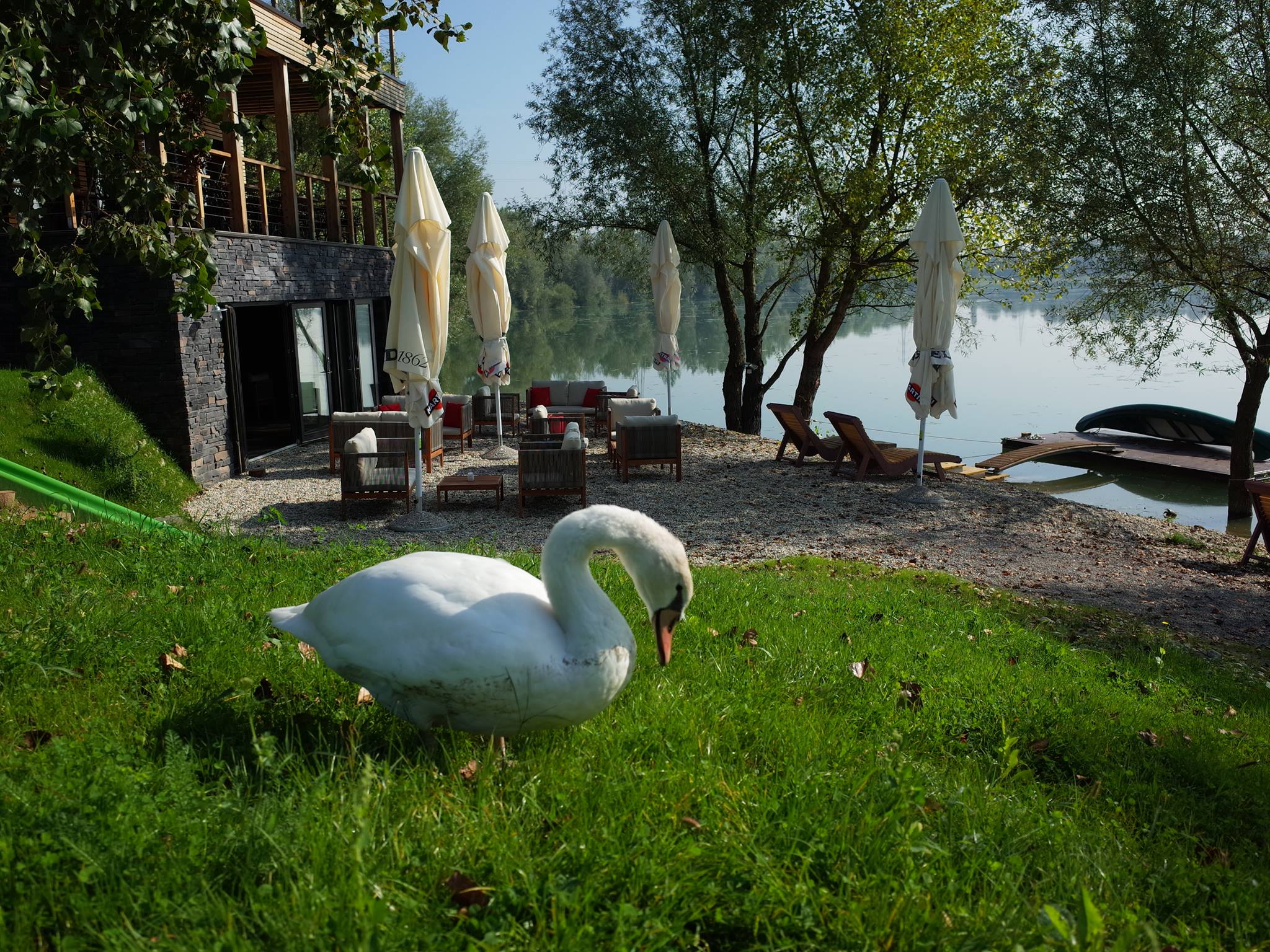
Nature at its finest, whatever the season.
Check out the official promo video below, and learn more about Camp Zagreb on the official website.
For the latest from Sveta Nedelja, follow the dedicated TCN section.
This article is in paid partnership with the Sveta Nedelja Tourist Board.
Sveta Nedelja Free Bus Service to Begin in Croatia's Most Progressive Town
October 1, 2020 - A new Sveta Nedelja free bus service will soon come into operation, the latest innovative move from arguably Croatia's most progressive town.
A wise man once said: "Surround yourself with positive people and progressive thinkers, and watch how much more positive your life becomes."
After years of living in Croatia listening to people complaining in cafes and the media about how terrible things are here, I made a decision to surround myself with positive people and those looking forward rather than back to the past.
The results are amazing.
Rather than coming to accept that there is no good news in Croatia and nothing is possible without connections, when surrounded by some positive forces, you learn that actually quite a lot IS possible, and things ARE getting done. One great example of this, of course (and a hot topic right now), is the imminent introduction of the digital nomad visa for Croatia. Croatia will be only the second country in Europe to introduce this progressive new direction for Croatia. And all because a Dutchman, Jan de Jong, sent an open letter to the prime minister on LinkedIn asking for the visa. Some 44 days later, following a meeting with de Jong, Prime Minister Plenkovic tweeted that his government would introduce the visa, and it was introduced into Parliament the following day.
Just 44 days.
During the summer.
In Croatia.
Incredible.
De Jong has now turned his attention to getting Croatia to plant again, by starting a new project with Dutch technology, to grow tomatoes in northern Croatia, creating an initial 72 jobs. Within days of posting his intentions on LinkedIn, he had already received offers of 5 million euro in investments from all over the world.
Quite inspiring, this positive atmosphere, isn't it?
And it is not just the private sector. Several local authorities are doing incredible things trying to modernise the archaic and nepotistic administrations they have inherited. And, as I learned last weekend on my first visit to the town of Sveta Nedelja just outside Zagreb, some administrations are doing things rather nicely indeed. In an age of emigration, unemployment and economic hardship, here was a town whose population has grown 10% since the 2011 census, which has created 20% more jobs since 2017, whose unemployment rate of 3.9% is well below the national average, and whose transparent administration and aggressive slashing of local taxes have helped grow the budget from 107 million kuna in 2017 to 169 million kuna this year.
And all the good news and income is being passed on to its residents through a range of innovative schemes, the latest of which was announced by Mayor Dario Zurovec on Facebook two days ago - the introduction of the Sveta Nedelja free bus service, which will come into operation in a few weeks. Here is what the mayor had to say:
Today I signed a contract with the bus carrier Arriva to provide a bus service in the area of the town of Sveta Nedelja. We will announce the exact start date of the traffic soon, after we have just solved a few small formalities. Passengers on local buses will not have to buy tickets. Below you can read how the concept was conceived, and we will inform you about the exact schedules and timetable just before the start of operations.
As part of our free public transport we will introduce 3 lines to Podsused that allow you to connect to trains. In this way, passengers will have more favorable conditions because the ticket will not cost them anything until they change to the train. Additionally, this way you avoid traffic jams on the roads to the center of Zagreb or even the east, and it is possible to travel to Zaprešić. Those who do not like the train will be able to continue their journey on ZET buses:
* from the Podsused roundabout towards the Ljubljanica and Črnomerec
* on the other side of the railway in Podsused (Av. Bologne) towards Črnomerec and Zaprešić
Also, at the other end of one of the bus lines, it will be possible to change to ZET in Kalinovica (on the old road) and from there travel to the Sava Bridge.
As for traveling to Samobor, there is an option to travel to Sveta Nedelja or Strmec by free public transport and then change to Samoborček / Autoturist.
The introduction of free public transport does not mean that existing bus carriers stop running. So, they continue to operate, because their lines are inter-county and county, which is why they are not under our jurisdiction. This means that the same Samoborček / Autoturist lines continue to run at the same prices to Zagreb and Samobor until these carriers decide otherwise.
In the future, we intend to further improve this free public transportation service.
With the current legal framework, this is a big step forward and far better than the model we have had so far. This concept of city transport allows you to get anywhere within the city of Sveta Nedelja without paying a ticket, and to get to Zagreb quickly and for a very low price because you only pay the train or ZET. Also, this will make the trip to Samobor cheaper. In addition to all that, departure times will be frequent throughout the week, but also on weekends and holidays, while night lines will also run on weekends and holidays. The carrier was selected through a public tender, the value of the contract is about 4.2 million kuna per year and is financed entirely from the town budget.
In this way, Sveta Nedelja has once again become an example to other towns in Croatia. In addition to the quality of service to citizens, additional benefits of this kind of public transport are that there will be fewer cars and less traffic jams, fewer traffic accidents, less CO2 emissions, with of course a more favorable situation for your home budgets.
Thanks to all my collaborators and Davor Nadji who worked with us on this project until recently. I am happy that we are fulfilling our promises, and we will not stop there. More good news for our Sveta Nedelja is coming soon!
Mayor Zurovec was on the bus today on a test run, and he posted on Facebook Live with more details on how this will all work.
Sveta Nedelja is a great story which we will be following is more detail over the next 12 months and more, a true example of how things CAN work in Croatia. Here is an overview of the first part of my first visit to Croatia's newest town last weekend - read more in Sveta Nedelja Beyond Rimac: Jobs, Innovation, Nature, Population Growth.
You can follow the latest in the Sveta Nedelja revolution in our dedicated TCN section.
Official Croatian Websites: Who is Really Engaging with the World?
September 30, 2020 - The user experience of official Croatian websites for non-Croatian speakers can be very frustrating. So who is taking its foreign visitors seriously?
One of the realities about being a blogger in Croatia and writing for TCN is that I have spent far more time than is healthy over the last decade on official Croatian websites in search of information that simply was not available in English - and often, even in Croatian.
Official Croatian websites are an interesting sub-species, and in many ways they give a great insight into the mentality and mindset of the authority that they represent. A mindset which - albeit it very slowly - is beginning to change.
I have lost count of the number of local tourist boards, for example, whose websites exist only in Croatian. Never mind that the point of the website is to provide information to the end-user - the non-Croatian-speaking tourist. Providing an English version is above and beyond the call of duty. Some official websites do have an English version, which once uploaded, is then never updated. A website has been created - tick. An English version (usually much smaller) has been created - tick. And then things are forgotten. Never mind the needs of the end-user. Things then stay the same for years, so much so in fact that ministries can even enter 2020 with the fax machine as their main tool of communication.
I heard a story earlier this year about Mate Rimac and the Rimac Automobili website, which to this day is in English only. When the site first went live, the story goes, Rimac was criticised for not having a Croatian version of the site. The alleged reply is that his market was the world, not the 4 million people living in Croatia - he was engaging with his desired audience.
This is something that has been missing (and continues to this day) in most of the approaches of official Croatian websites, where the relevant authorities seem to have a mindset that a website is less an effective tool of communication with its audience, and rather a chore to be completed to tick off the box.
Things are changing, albeit very slowly, and if you look hard, you can see some seeds of mindset change taking place, even in places where you might not suspect it.
With all my dealings with official Croatian websites this year, the clear winner for me - and this may surprise people - is without question MUP and the Croatian Border Police for their excellent handling of the corona crisis.
In addition to the 21.7 years of waiting that the Enter Croatia form - available in 11 languages - saved at Croatia's borders in the first three months, MUP produced a comprehensive information section on all you needed to know, with regularly updated FAQs. In THREE languages - Croatian, English and German. While the Ministry of Tourism was ordering more fax paper to deal with its incoming faxes, MUP was providing a service-oriented approach directly meeting the needs of its end users. If there is an award for official communication during the corona crisis, I sincerely hope that MUP wins it. Having been heavily involved in the information flow since February, I cannot overexaggerate the outstanding role they played.
Of course, one of the benefits of providing what the customer needs online is that you then don't have use resources to provide the same information to users phoning and emailing for the information. By meeting the needs of the end-user on the website, you have more time to deal with your other tasks. In a commercial mindset, that makes complete sense, but much of Croatian officialdom is far away from that mentality and mindset at the moment.
But it is changing.
Last weekend was a real eye-opener for me, as the family and I spent a weekend at arguably Croatia's most progressive town, Sveta Nedelja (coincidentally - or is it? - the home of the Rimac revolution). You can read about our visit to the many successful businesses in the town here, but one of the many things that caught my eye that weekend was the official Sveta Nedelja website. This little town of 20,000 people had what almost no other local authority has in all Croatia - not only a website in no less than three languages (Croatian, English and German), but also one which is filled with user-friendly advice which not only informs but also gives the impression that it wants you to visit, to invest. As the town's English slogan suggests - Here I Have Everything.
A local authority which is engaging with its end user.
Sveta Nedelja is actively courting new business with its transparent administration and tax incentives. The Rimac factor is an obvious pull, as is its superb position just off the motorway and a few minutes from both Zagreb and Slovenia, but many other businesses are moving to the town. And the numbers speak for themselves - 20% more jobs created since 2017 during a global downturn, a 10% population increase since the 2011 census, unemployment at just 3.9% compared to the national average of 9%.
The three languages are one thing, but the quality of the information available is another. In the entrepreneur section, for example, there are comprehensive sections in three languages on the benefits for entrepreneurs, the investment process in Sveta Nedelja, information about communal contributions and utility fees, as well as contact information which includes an invitation to the Mayor's Open Door session on Mondays from 13:00 to 16:30.
I have never really spent much time looking at local authority websites in Croatia, but I was now curious to see how the forward-thinking Sveta Nedelja approach compared with some of the bigger cities.
There was no contest.
Zagreb has a limited English section, which has all the hallmarks of ticking a box. Its introduction is As we enter 2020, Zagreb will become the headquarters of the Presidency of the Council of the EU. There is a promising Press section on the navbar, which turns out to have been created back in 2017 and has absolutely zero content in it apart from some contact details.
With the very notable exception of Rijeka (trilingual in English, Croatian and Italian), none of the other big cities in Croatia have any meaningful foreign language section. Some have created the buttons, but the actual content is minimal to non-existent.
Does any of this matter? Isn't the local authority website primarily for its local residents? Yes, of course it is, but not exclusively. There is more and more foreign interest in the Croatian lifestyle these days, and the introduction of the digital nomad visa will only increase that interest, and some of those will be looking for investment opportunities. But there is another important point here. We live in a global village, with lots of talk of SMART cities and inward investments. The very minimum that a local authority needs to do if they are serious about attracting investment is to make it as easy as possible for any interested parties to get the information they need from Google Search.
We live in a global market, and ticking a box is no longer sufficent if we want to compete. And if we do want to compete, success is possible.
Just ask Sveta Nedelja.
Sveta Nedelja Beyond Rimac: Jobs, Innovation, Nature, Population Growth
September 29, 2020 - Looking for a part of Croatia which is booming in this economic crisis? Look no further than Sveta Nedelja near Zagreb, where Rimac Automobili is just a small part of the story.
One of the most inspiring events in Croatia each year is the EY Entrepreneur of the Year Award in Zagreb, a gala dinner which brings the brightest and most successful Croatian entrepreneurial talent together to celebrate its success. I have been fortunate to have attended the event as a journalist twice, witnessing two very worthy winners, Mate Rimac and Croatia's first unicorn, Infobip.
Rimac, the one-man Croatian car industry who has brought inward investment from the likes of Porsche and Hyundai, as well as being reportedly on the verge of acquiring Bugatti for his Rimac Automobili company, is headquartered in Croatia's newest town, Sveta Nedelja, just a few minutes drive from the capital, Zagreb. Quite by chance, one of my dining partners at the Entrepreneur of the Year dinner, was also headquartered in Sveta Nedelja, and he too, had been a previous EY finalist, back in 2015. And what a story he had - a Syrian who employed more than 600 Croatians, running a business empire with an annual turnover of more than 200 million euro.
Mohamed Radwan Joukhadar's story is as fascinating as the man himself, one which we have partially retold previously on TCN. As I watched the two business powerhouses from Sveta Nedelja at the gala dinner, I wondered if it was just a coincidence that they had based themselves in the same town, and I made a mental note to look into it a little more closely when I had a moment.
That moment finally arrived last weekend.
In addition to the business success of Sveta Nedelja, the town made it onto TCN news for another, very un-Croatian, reason - transparency in its local administration. A local authority which transparently published every invoice on its website, and one which introduced innovative initiatives such as paying its employees based on citizen evaluation Now I was intrigued.
A Facebook chat with then deputy mayor Davor Nađi at the beginning of this year led to an invitation to visit the town, to learn more about Sveta Nedelja beyond Rimac. Nađi wanted to show me the thriving business scene, the transparency of the public administration, and - and I had not even considered this - the tourism potential of Sveta Nedelja.
(Photo credit Grad Sveta Nedelja)
It was quite a visit. And one which we will be covering in quite some detail, in partnership with the town of Sveta Nedelja. We begin with an overview of just some of the businesses which are thriving in the town, all of which we will be featuring in greater detail on TCN in the coming weeks. Writing for TCN over the years, I am used to being taken around a tourism destination to visit all the sites with a guide. And while that also happened on the Saturday in Sveta Nedelja, the tour of just a fraction of the excellent businesses located in the town showed just how successful this small town has been in attracting outstanding businesses from numerous sectors, which are quietly performing brilliantly on the national, regional, and even global stage.
And the numbers speak for themselves. In an age of huge emigration from Croatia, the population of Sveta Nedelja has increased more than 10% since the last census in 2011, when there were 18,059 people resident in the town. Today that number is over 20,000.
The employment situation is even better, as jobs are being lost elsewhere. A 20% increase in jobs since 2017, from 7,200 to 9,000, the year that the current administration, led by independent mayor Dario Zurovec, took charge. Unemployment is down to just 3.9%, considerably less than the 9% national average. Aggressive local tax cuts to stimulate business and transparent administration have played their part in filling the local government coffers, with the budget increasing from 107 million kuna annually in 2017 to 169 million during the period of this administration. And with the town located just ten minutes from the Slovenian border, one minute from the motorway network and a bus ride to Zagreb (a free bus ride to the ZET network in Zagreb is planned in the coming months), the town also has many geo-location advantages.
But while there might be a lot of businesses operating there, I was struck by how many of them were forward-thinking businesses, less polluting industrial production. Clean technologies and clean nature.
And if there is a town with a higher ratio of kindergartens per capita in Croatia, I would like to see it. Kindergartens are EVERYWHERE. In addition to the booming economy, Sveta Nedelja is just 15 minutes from Zagreb, but a natural paradise of lakes, hills and spectacular views. My expectations prior to my arrival were of an industrial town. The expectations of my kids were even lower - another boring weekend with Dad - but on the Sunday drive home, it was they asking when we could go back.
So how much fun can you have touring businesses in Sveta Nedelja on a Friday in late September?
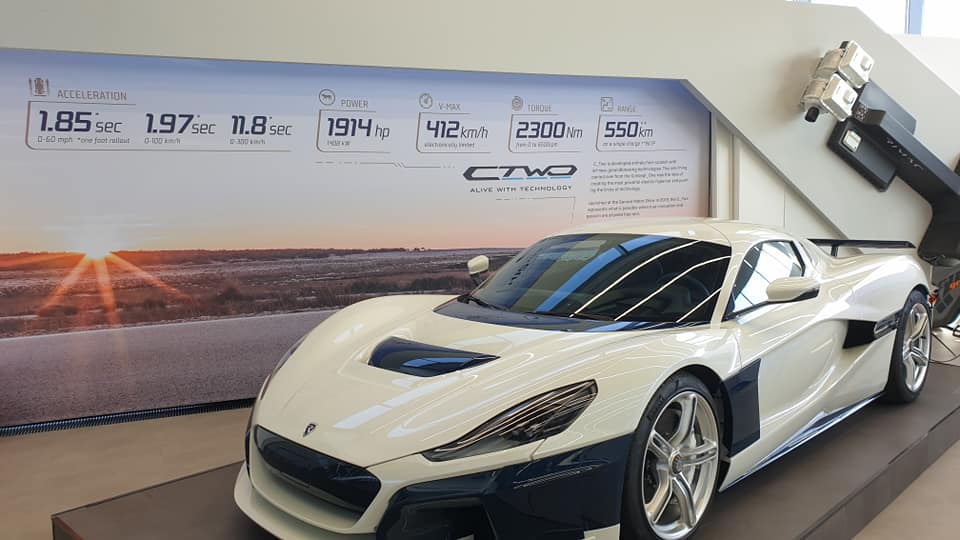
Where better to start the day than at the town's most famous business, and a global superstar. I will write more about the visit to Rimac Automobili shortly, but perhaps these two photos will suffice as a taster of the incredible Rimac journey, from a beat-up BMW with blown engine in 2008 to the C_2 electric hypercar, price tag US$2.75 million, just over a decade later.
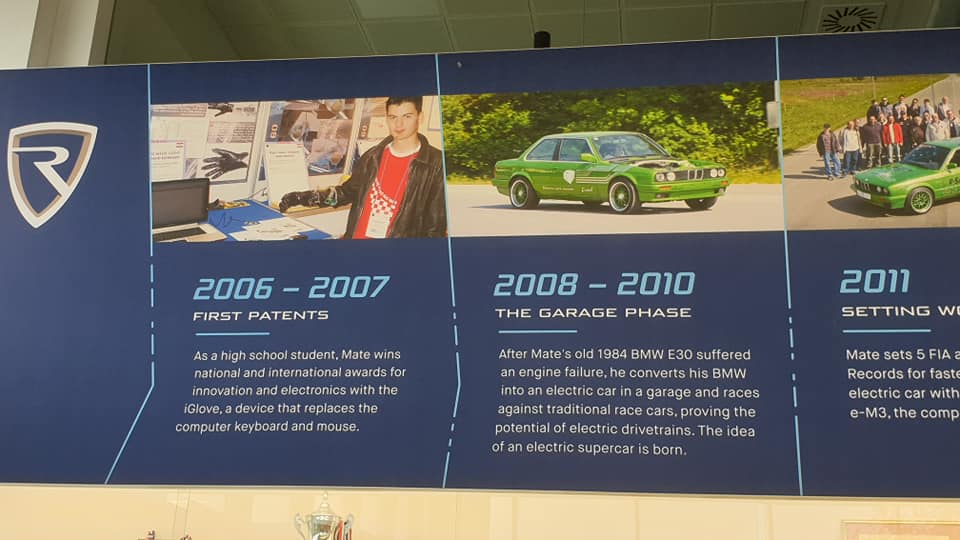
Never mind the investment from the likes of Porsche and Hyundai, or that rumoured Bugatti acquisition.
With more than 800 employees and all the international headlines, one might expect that Rimac would be the biggest show in town, but a bigger contributor to the town budget was my new Syrian friend from the Entrepreneur of the Year dinner. Now with 829 employees in his portfolio of businesses, his flagship Medical Intertrade company, which specialises in medical devices, medical products and medical equipment, turned over a quarter of a billion euro last year, up an impressive 25% since 2015.
As we have written about extensively on TCN, Croatia has a thriving medical tourism industry, with the potential to become one of the market leaders in Europe,. The industry is not well-coordinated, however, and I am continually finding pockets of medical tourism excellence all over the country. And in Sveta Nedelja, on the first day of our visit, we were introduced to not one, but two. One of the messages that came across very clearly that first day was the concept of niche markets to establish a position on regional and global market. Rimac is of course a great example of that, but there were several others. A visit to Sveta Nedelja Clinic and Ottobock Adria was an eye-opener. Global specialists in prosthetics and rehabilitation for amputees, this dual business under one roof attracts more than 1,200 patients for rehabilitation from all over the world each year. Sveta Nedelja's lockdown earlier this year apparently included 20 amputees from Libya.
Radiochirurgia Zagreb from Radiochirurgia Zagreb on Vimeo.
A short drive away, at Radio Chirurgia Zagreb, one can find one of the most advanced clinics for diagnotics and treatment of various forms of cancer. With the most advanced technology in its field in the wider region, as well as advanced and painless diagnostic methods such as virtual colonoscopies, the diagnostics, treatment and technology offered by Radio Chirurgia Zagreb places it as one of the leading clinics in the region for this niche.
The niche business which surprised us the most is one you would not normally think about - engineering process control systems for large production facilities. This has been a speciality for Sveta Nedelja-based Montelekro since 1990, and they have carved out an impressive business model with a focus on the brewing industry.
With Heineken a key client, Montelekro's systems are in over 250 breweries all over the globe, and they are also very active in the cement, steel, pharmaceutical and tobacco industries.
And, as it the case with many other businesses in the town, growth in revenue and jobs has been steady over the years.
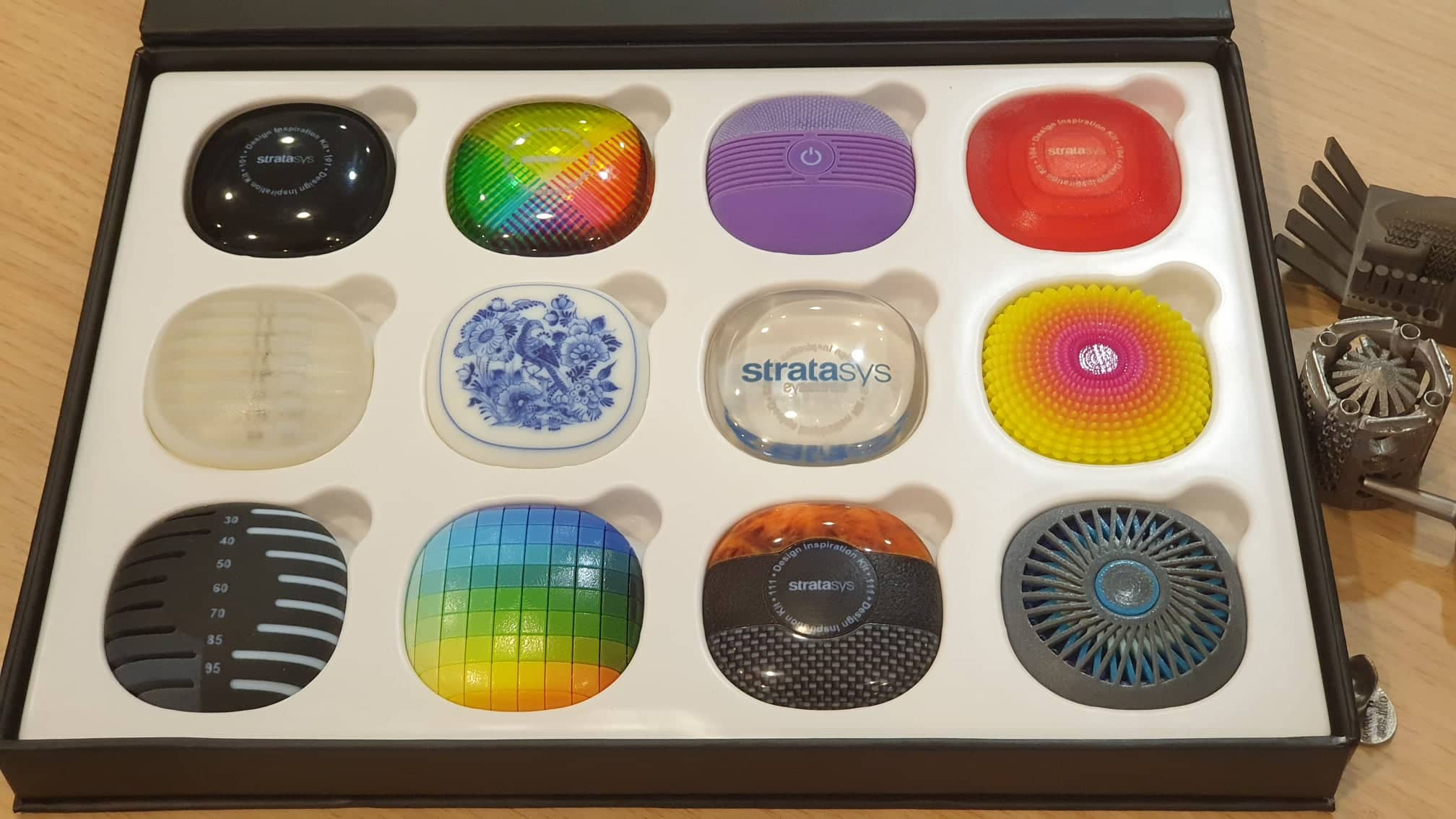
There was no doubt which business was the most fun to visit, and one which we would happily return to for the day - 3D Grupa. One of the newest businesses in the town, having relocated from Zagreb back in February, 3D Grupa is a fascinating introduction to the world of 3D printing. The facility is actually three different companies, which all interconnect - 3D scanning, 3D printing and 3D virtual modelling. One of their biggest objects to scan this year was a 40-metre yacht moored off Sibenik.
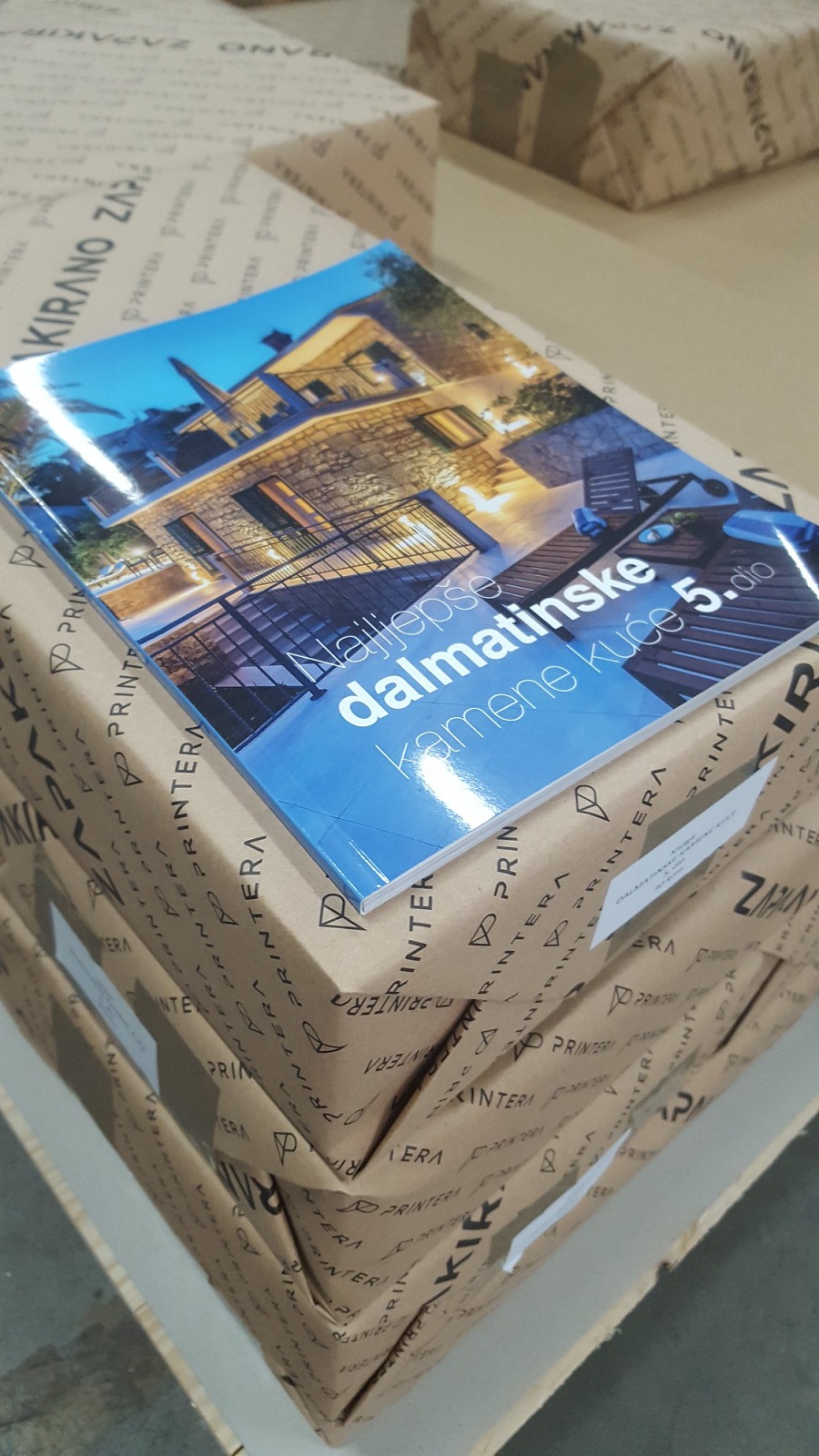
From leading 3D printing solutions, to more traditional printing methods embracing the latest technology, 3D Grupa might be a new arrival in Sveta Nedelja, but Printera Grupa has been successfully operating and growing in the town since 1990. Specialists in brochures, magazines, monographs, picture books, direct mailing, offset print and digital print, Printera's strong domestic client base is complemented with established export markets in Austria, Germany, Slovenia, France, Denmark, Belgium, Italy, Liechtenstein, and the United States.
Sveta Nedelja's cosmetic excellence can be found at Magdis doo, whose Biobaza and Neva brands are growing in popularity both domestically and internationally. With more than 150 products and a key partnership with partners such as drug chain DM, Magdis has an excellent national and regional distribution network for its products. Parent company Magdis was founded in 1993 by Srećko Gross, a former Pliva Expert, whose years of experience in pharmaceutical production helped to build the company. Known as a provider of premium services of dietary and cosmetic products, Magdis also has a strong product research and development arm. The Biobaza range has been adapted to sensitive skin, as there are no preservatives, irritants, artificial fragrances or colours in its products, and a high proportion of its products are of natural origin.
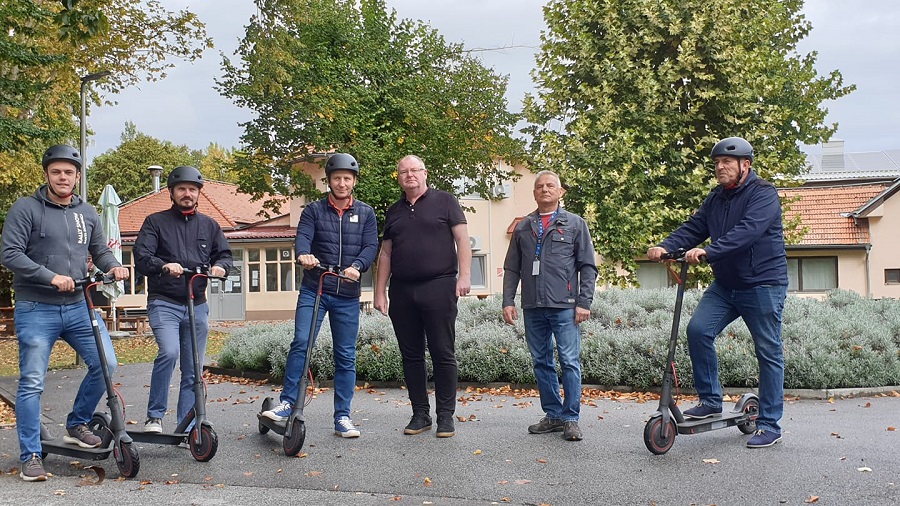
Mayor Zurovec joined us on electric scooters for the last business visit of the trip, to one of the town's oldest businesses, which was recently acquired and is exporting all over the globe. Genera's roots can be traced back to the Royal Croatian-Slavonian Bacteriological Institute in 1901. Part of the Pliva empire for over 60 years, it was acquired in 2015 by Dechra Pharmaceuticals PLC from the UK and is now listed on the London Stock Exchange. Its core activities include animal health products, food supplements in the form of vitamins and minerals and plant protection products, and its exports are global.
"But this is just a tiny fraction of the successful businesses you will find here," said the mayor with a smile. "We can only show you so much in one day."
And he was right. As we toured the town later that weekend, successful business after successful business was pointed out as we passed. Croatia really can work well with the right conditions and mindset.
Sveta Nedelja is consistently named as the best town for entrepreneurship in Croatia, and after this brief introduction, it is not hard to understand. We will look at the administration's transparency and business incentives in a later article, but check out the video above (with English subtitles of course...) to learn more about the business success story. And there was one other surprise when I went to visit the official town website - I don't think I have ever come across a local authority website in three languages before - even an English version is comparatively rare. Check out the section for entrepreneurs in English, for example. Or German.
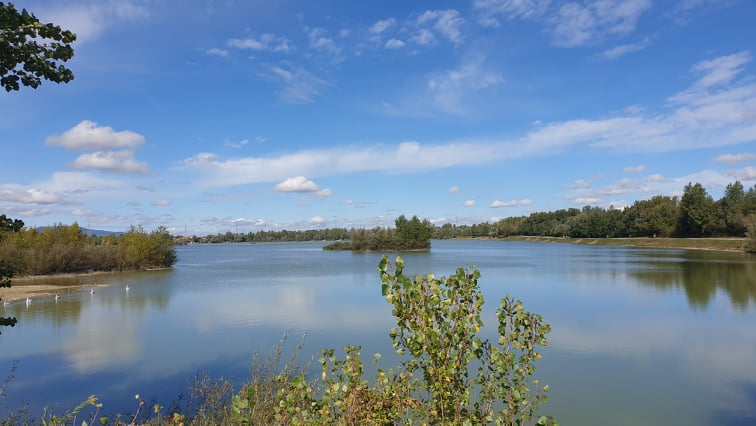
Throughout the day, as we drove from business to business, there were moments of extreme beauty, and I was promised a tourist experience that I had not expected. My perceptions of Sveta Nedelja as an industrial zone had certainly been shattered - some parts of it, especially its lakes, were exquisitely beautiful. And just a bus ride from the centre of Zagreb.
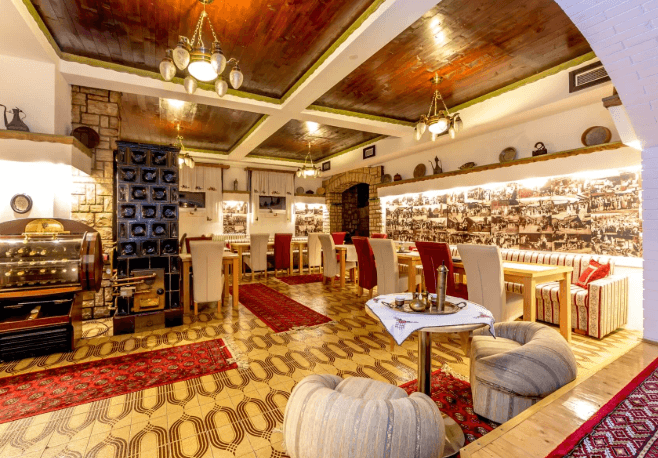
(Sevdah Facebook page)
A day full of surprises, and we reflected on our perceptions of a town we had known little about some 24 hours earlier, apart from the famous Rimac association. But the surprises were not quite finished yet - a delightful authentic Bosnian restaurant called Sevdah was an additional unexpected highlight on this rather fabulous and very stimulating day.

And if, as the mayor suggested, we had only seen the tip of the iceberg of successful businesses in Sveta Nedelja, how much more was there to discover?
And what of the promised tourism surprises that would leave my kids asking to return some 48 hours later.
Sveta Nedelja beyond Rimac - to be continued...
For the latest travel info, bookmark our main travel info article, which is updated daily.
Read the Croatian Travel Update in your language - now available in 24 languages
Sveta Nedelja to Enable Service Payments in Cryptocurrency
Sveta Nedelja, which is home to the famous Rimac Automobili owned by beloved and wildly successful Croatian entrepreneur Mate Rimac, is planning to introduce something quite extraordinary and it will be among the first in the world to make such a move.
With the ongoing coronavirus pandemic continuing to capture the majority (if not all) of the attention of the world's media, including that of Croatia which has seen an unfortunate and rapid rise in infections over the last few days following a tennis event held in Zadar, it's difficult to come across positive, non-coronavirus related stories.
As stated, Sveta Nedelja in continental Croatia is going to bring in something that will provide some more positive reading material as the pandemic and the negative economic consequences caused by it continue.
As Poslovni Dnevnik writes on the 26th of June, 2020, in addition to using standard money, Sveta Nedelja near Zagreb is also introducing a cryptocurrency processing service that can be used when paying for public services carried out by Sveta Nedelja. According to Mayor Dario Zurovec, investing in technology is the only way forward.
''Our vision is to be a town for doing smart business and leading a comfortable life, we're keeping pace with the times, and we often like to be leaders in change,'' Zurovec stated.
According to Mayor Dario Zurovec, investing in technology is the only way forward.
''In Sveta Nedelja, there are companies that use cryptocurrencies, such as Mate Rimac's Greyp Bikes, with which people will also be able to pay their utility fees. By introducing such services, we're sending a message that we are facing the future and that we're ready to dictate the pace of change,'' assured Zurovec.
This move might seem confusing to some who don't follow such trends, but it regards the conversion of cryptocurrency into Croatian kuna, according to the valid exchange rate at the time of the service. It will be performed through Electrocoin's PayCek cryptocurrency payment processing platform, which will process the cryptocurrency when people pay for public services carried out by Sveta Nedelja.
For more, follow our lifestyle page.
Transparent Croatia: Sveta Nedelja to Pay Officials Based on Citizen Evaluation
With Bjelovar getting the ball well and truly rolling, a transparent Croatia could be closer than ever. A former pipe dream in a country with numerous essential systems mired in corruption, a transparent Croatia could give residents what they need to stay in Croatia.
As Index/Marko Repecki writes on the 21st of February, 2020, Sveta Nedelja is set to introduce a fixed and variable part of its salary paid to its officials and civil servants, which will depend on the evaluation they get from citizens. This revolutionary move was announced on Mayor Dario Zurovec's Facebook profile, marking another step forward into a more transparent Croatia.
Sveta Nedelja near Zagreb is known for its enticing tax reliefs, but also for many successful businesses operating in its area. The most famous is probably Rimac Automobili, owned by beloved Croatian entrepreneur, Mate Rimac.
In addition to grading officials and civil servants and the new wage system, this town near Zagreb will also introduce a new level of transparency, meaning that citizens will have access to all the bills and invoices the city pays and the contracts it concludes.
This is a decision not many local sheriffs will like...
Many local sheriffs are far from pleased to see these kinds of ideas because they fear that their fellow citizens may also ask for something similar, but this practice is slowly spreading as a more transparent Croatia gradually begins to emerge. The younger generation of local leaders, however, understands that they are in their jobs because of the citizens, and the citizens aren't there just because of them. Bjelovar, which has been written about frequently of late, also has systems for monitoring accounts after Mayor Dario Hrebak introduced it. The Municipality of Omisalj also boasts such a system, as Mirela Ahmetovic introduced a cost transparency system.
''We're the first in Croatia to introduce employee appraisal by citizens and pay and reward them according to those appraisals, thus introducing a fixed and a variable part of their income. Specifically, today we have introduced an application through which citizens will be able to evaluate employees after using a service within city administration. Furthermore, city government employees will also be able to evaluate each other, and the result of this process will be a ranking of employees by grade. In the second step, we'll propose to the city council a 10 percent pay cut for all employees,'' Zurovec wrote on Facebook upon announcing the move.
The ability for citizens to evaluate officials and civil servants begins on March the 1st, 2020
"We will then pay them rewards each quarter as follows:
• 5 percent of the worst rated will not receive a reward (they will receive 10 percent less of their current income)
• The next 20 percent will receive a reward of half of the amount that has been deducted (they will receive a bonus of 5 percent lower than their previous salary)
• The middle 50 percent of those assessed will receive a reward in the same amount as their salary (ie, their salary + reward will be equal to their previous salary)
• The next 20 percent of those assessed will receive a reward in excess of the salary reduction (their salary + reward will be 5 percent higher than their previous salary)
• The top rated 5 percent will receive a reward of double the salary reduction (salary + reward will be 10 percent higher than their previous salary)
The ability for citizens to evaluate employees starts from March the 1st, 2020. If the City Council decides to formally adopt the decision, and I believe it will, it will be reflected in wages for the first time on July the 1st, 2020. The evaluations will be done in such a way that when using a city administration service, the citizen will receive a four-digit code from the employee, which he will enter into the application so that he can access the grading of that employee,'' Zurovec's statement reads.
The publication of all invoices/bills and purchase orders will further encourage a transparent Croatia.
"We're the first in Croatia to make all of our contracts, purchase orders and invoices/bills public in order for people to see the documents to which the invoices are linked. Here, we'll show all documents, even those below 20,000 kuna, which is not obligatory under the public procurement law. The only exception is, if we have such cases, contracts or invoices related to social welfare. In Croatia, we introduced real-time electromagnetic radiation measurements with the online publication of these documents in collaboration with the Koncar Institute to give our citizens an insight into the real levels of radiation, a level of transparency in all areas not ever seen before in Croatia.
After introducting the biggest local tax reliefs, Sveta Nedelja is once again raising the bar for the entire country, this time in the field of transparency, it is also raising the level of efficiency of the public sector, and we're proving that it can be better! Finally, I'd like to ask for understanding if the application experiences some difficulties at the beginning of its function, and we're open to suggestions for further improvements,'' Dario Zurovec's Facebook profile reads.
Make sure to follow our dedicated politics page for more information on a more transparent Croatia.


